Van Morrison | ||
| Allmusic Biography : Equal parts blue-eyed soul shouter and wild-eyed poet-sorcerer, Van Morrison is among popular musics true innovators, a restless seeker whose incantatory vocals and alchemical fusion of R&B;, jazz, blues, and Celtic folk produced perhaps the most spiritually transcendent body of work in the rock & roll canon. Subject only to the whims of his own muse, his recordings cover extraordinary stylistic ground yet retain a consistency and purity virtually unmatched among his contemporaries, connected by the mythic power of his singular musical vision and his incendiary vocal delivery: spiraling repetitions of wails and whispers that bypass the confines of language to articulate emotional truths far beyond the scope of literal meaning. George Ivan Morrison was born in Belfast, Northern Ireland, on August 31, 1945; his mother was a singer, while his father ardently collected classic American jazz and blues recordings. At 15, he quit school to join the local R&B; band the Monarchs, touring military bases throughout Europe before returning home to form his own group, Them. Boasting a fiery, gritty sound heavily influenced by Morrison heroes like Howlin Wolf, Brownie McGhee, Sonny Boy Williamson, and Little Walter, Them quickly earned a devout local following and in late 1964 recorded their debut single, "Dont Start Crying Now." The follow-up, an electrifying reading of Big Joe Williams "Baby Please Dont Go," cracked the U.K. Top Ten in early 1965. Though not a major hit upon its original release, Thems Morrison-penned "Gloria" endures among the true classics of the rock pantheon, covered by everyone from the Doors to Patti Smith. Lineup changes plagued the band throughout its lifespan, however, and at the insistence of producer Bert Berns, over time session musicians increasingly assumed the lions share of recording duties. A frustrated Morrison finally left Them following a 1966 tour of the U.S., quitting the music business and returning to Belfast. After Berns relocated to New York City to form Bang Records, he convinced Morrison to travel stateside and record as a solo artist; the sessions produced arguably his most familiar hit, the jubilant "Brown-Eyed Girl" (originally titled "Brown-Skinned Girl"), a Top Ten smash in the summer of 1967. By contrast, however, the resulting album, Blowin Your Mind, was a bleak, bluesy effort highlighted by the harrowing "T.B. Sheets." The sessions were originally intended to produce only material for singles, so when Berns released the LP against Morrisons wishes, he again retreated home to Ireland while the album tanked on the charts. Berns suffered a fatal heart attack in late 1967, which freed Morrison of his contractual obligations and energized him to start working on new material. His first album for new label Warner Bros., 1968s Astral Weeks, remains not only Morrisons masterpiece, but one of the greatest records ever made. A haunting, deeply personal collection of impressionistic folk-styled epics recorded by an all-star jazz backing unit including bassist Richard Davis and drummer Connie Kay, its poetic complexity earned critical raves but made only a minimal commercial impact. The follow-up, 1970s Moondance, was every bit as brilliant; buoyant and optimistic where Astral Weeks had been dark and anguished, it cracked the Top 40, generating the perennials "Caravan" and "Into the Mystic." The first half of the 70s was the most fertile creative period of Morrisons career. From Moondance onward, his records reflected an increasingly celebratory and profoundly mystical outlook spurred on in large part by his marriage to wife Janet Planet and the couples relocation to California. After His Band and the Street Choir yielded his biggest chart hit, "Domino," Morrison released 1971s Tupelo Honey, a lovely, pastoral meditation on wedded bliss highlighted by the single "Wild Night." In the wake of the following years stirring Saint Dominics Preview, he formed the Caledonia Soul Orchestra, featured both on the studio effort Hard Nose the Highway and on the excellent live set Its Too Late to Stop Now. However, in 1973 he not only dissolved the group but also divorced Planet and moved back to Belfast. The stunning 1974 LP Veedon Fleece chronicled Morrisons emotional turmoil; he then remained silent for three years, reportedly working on a number of aborted projects but releasing nothing until 1977s aptly titled A Period of Transition. Plagued for some time by chronic stage fright, Morrison mounted his first tour in close to five years in support of 1978s Wavelength; his performances became more and more erratic, however, and during a 1979 date at New Yorks Palladium, he even stalked off-stage in mid-set and did not return. Into the Music, released later that year, evoked a more conventionally spiritual perspective than before, a pattern continued on successive outings for years to come. Albums like 1983s Inarticulate Speech of the Heart, 1985s A Sense of Wonder, and 1986s No Guru, No Method, No Teacher are all largely cut from the same cloth, employing serenely beautiful musical backdrops to explore themes of faith and healing. For 1988s Irish Heartbeat, however, Morrison teamed with another of his homelands musical institutions, the famed Chieftains, for a collection of traditional folk songs. Meanwhile, Avalon Sunset heralded a commercial rebirth of sorts in 1989. While "Whenever God Shines His Light," a duet with Cliff Richard, became Morrisons first U.K. Top 20 hit in over two decades, the gorgeous "Have I Told You Lately That I Love You" emerged as something of a contemporary standard, with a Rod Stewart cover cracking the U.S. Top Five in 1993. Further proof of Morrisons renewed popularity arrived with the 1990 release of Mercurys best-of package; far and away the best-selling album of his career, it introduced the singer to a new generation of fans. A new studio record, Enlightenment, appeared that same year, followed in 1991 by the ambitious double set Hymns to the Silence, widely hailed as his most impressive outing in years. Following the uniformity of his 80s work, the remainder of the decade proved impressively eclectic: 1993s Too Long in Exile returned Morrison to his musical roots with covers of blues and R&B; classics, while on 1995s Days Like This he teamed with daughter Shana for a duet on "You Dont Know Me." For the Verve label, he cut 1996s How Long Has This Been Going On, a traditional jazz record co-credited to longtime pianist Georgie Fame, and for the follow-up, Tell Me Something: The Songs of Mose Allison, he worked with guest of honor Allison himself. Morrison continued balancing the past and the future in the years to follow, alternating between new studio albums (1997s The Healing Game, 1999s Back on Top) and collections of rare and live material (1998s The Philosophers Stone and 2000s The Skiffle Sessions and You Win Again). It wasnt until 2002 that an album of new material surfaced, but in May his long-anticipated Down the Road was released. Three years later, Morrison issued Magic Time. Pay the Devil, a country-tinged set, appeared in 2006 on Lost Highway Records. That same year, Morrison released his first commercial DVD, Live at Montreux 1980 and 1974, drawn from two separate appearances at the Montreux Jazz Festival. In 2008, Morrison released Keep It Simple, his first album of all-original material since 1999s Back on Top. In November of that same year, Morrison performed the entire Astral Weeks album live at two shows at the Hollywood Bowl in Los Angeles, which resulted in 2009s Astral Weeks: Live at the Hollywood Bowl album and Astral Weeks Live at the Hollywood Bowl: The Concert Film. His 34th studio album, Born to Sing: No Plan B, recorded in Belfast, appeared in the fall of 2012. In 2015, Morrison made his debut for RCA Records with Duets: Re-Working the Catalogue, which found him sharing the mike on 16 songs with artists such as Michael Bublé, Steve Winwood, Mick Hucknall, and Joss Stone. After signing a deal with Sony Legacy to reissue much of his back catalog, the label issued Its Too Late to Stop Now...Vols. II, III, IV and DVD in June 2016. It consisted of unreleased music from the tour that produced the classic 1973 live album. Later that month, Morrison announced the release of an album of new studio set material. Released in September, Keep Me Singing offered 12 originals as well a cover version of Don Robeys "Share Your Love with Me." A year later, in September 2017, Morrison returned with his 37th album, Roll with the Punches, which saw him mixing new originals with renditions of blues and soul classics that inspired him by Sam Cooke, Bo Diddley, Little Walter and more. Guitarist Jeff Beck was a prominent guest. It peaked at number five on the Top 200 and number four in the U.K. He followed it less than three months later in December with Versatile, which was recorded in a handful of hotels in County Down. It featured Morrison delivering his own homage to jazz and iconic pop standards including George and Ira Gershwins "A Foggy Day" and "They Cant Take That Away from Me," Cole Porters "I Get a Kick Out of You" (one of two advance singles along with "Makin Whoopee"), "Lets Get Lost," "I Left My Heart in San Francisco," and "Unchained Melody," popularized by the Righteous Brothers. The covers are interspersed with six originals and it topped the jazz album charts and the album remained in the Top Ten for five months. Morrison hit the road with a vengeance. He performed completely sold-out tours across Europe and North America. In April 2018, Morrison issued his 39th album (and fourth in a year-and-a-half) in collaboration with Hammond B-3 and trumpet ace Joey De Francesco and his quartet (drummer Michael Ode, guitarist Dan Wilson, and tenor sax man Troy Roberts). Recorded over just a few days in San Francisco, the set includes jazz and blues standards and reworked jazz versions of a number of songs from Morrisons catalog including "Travellin Light," "Every Day I Have the Blues," "Miss Otis Regrets," and "The Things I Used to Do." These are juxtaposed with completely revisioned tracks from Morrisons catalog including "All Saints Day," "The Way Young Lovers Do," "Have I Told You Lately," and "Celtic Swing." A week after its release, the album entered the jazz charts in the top spot and remained in the Top Ten for nearly 22 weeks while the group toured the globe. In December, Morrison released his 40th album, The Prophet Speaks. Comprised of six new originals and covers of blues and soul classics from John Lee Hooker, Eddie "Cleanhead" Vinson, Sam Cooke, Solomon Burke, and Willie Dixon, the set was once again recorded with De Francescos quartet. The following year, Morrisons reissue campaign continued with a triple-disc deluxe version of 1997s The Healing Game. | ||
![Allmusic album Review : Although Van Morrisons first solo album is remembered for containing the immortal pop hit "Brown Eyed Girl," Blowin Your Mind! is actually a dry run for his masterpiece, Astral Weeks. Songs like "Who Drove the Red Sports Car" look to that song cycle, even as "Midnight Special" nods to Morrisons R&B past. But its the agonizing "T.B. Sheets" -- all nine-plus minutes of it -- that dominates this record and belies its trendy title and pop association. "T.B. Sheets" takes the blues and reinvents it as noble tragedy and humiliating mortality. Its where Van Morrison emerges as an artist. [Blowin Your Mind! was superseded in 1991 by Bang Masters, which contains all of its tracks except "He Aint Give You None," presented in an alternate take, plus Morrisons other recordings for Bang.] blowin_your_mind](../../images/van_morrison-blowin_your_mind.jpg) | Album: 1 of 43 Title: Blowin’ Your Mind! Released: 1967 Tracks: 8 Duration: 35:33 Scroll: Up Down Top Bottom 25% 50% 75% Spotify Allmusic AlbumCover | 1 Brown Eyed Girl (03:04) 2 He Ain’t Give You None (05:11) 3 T. B. Sheets (09:44) 4 Spanish Rose (03:06) 5 Goodbye Baby (Baby Goodbye) (02:57) 6 Ro Ro Rosey (03:04) 7 Who Drove the Red Sports Car? (05:35) 8 Midnight Special (02:51) |
| Blowin’ Your Mind! : Allmusic album Review : Although Van Morrisons first solo album is remembered for containing the immortal pop hit "Brown Eyed Girl," Blowin Your Mind! is actually a dry run for his masterpiece, Astral Weeks. Songs like "Who Drove the Red Sports Car" look to that song cycle, even as "Midnight Special" nods to Morrisons R&B past. But its the agonizing "T.B. Sheets" -- all nine-plus minutes of it -- that dominates this record and belies its trendy title and pop association. "T.B. Sheets" takes the blues and reinvents it as noble tragedy and humiliating mortality. Its where Van Morrison emerges as an artist. [Blowin Your Mind! was superseded in 1991 by Bang Masters, which contains all of its tracks except "He Aint Give You None," presented in an alternate take, plus Morrisons other recordings for Bang.] | ||
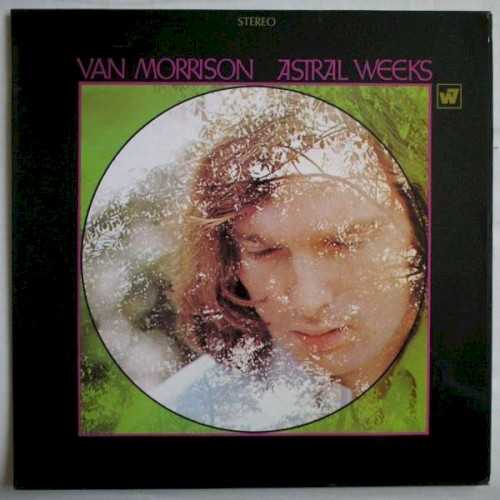 | Album: 2 of 43 Title: Astral Weeks Released: 1968-11 Tracks: 8 Duration: 47:11 Scroll: Up Down Top Bottom 25% 50% 75% Spotify TrackSamples Wikipedia Allmusic AlbumCover | 1 Astral Weeks (07:06) 2 Beside You (05:17) 3 Sweet Thing (04:23) 4 Cyprus Avenue (07:00) 5 The Way Young Lovers Do (03:18) 6 Madame George (09:45) 7 Ballerina (07:03) 8 Slim Slow Slider (03:17) |
| Astral Weeks : Allmusic album Review : Astral Weeks is generally considered one of the best albums in pop music history, but for all that renown, it is anything but an archetypal rock & roll album. It it isnt a rock & roll album at all. Van Morrison plays acoustic guitar and sings in his elastic, bluesy, soulful voice, accompanied by crack group of jazz studio players: guitarist Jay Berliner, upright bassist Richard Davis, Modern Jazz Quartet drummer Connie Kay, vibraphonist Warren Smith and soprano saxophonist John Payne (also credited on flute, though thats debatable -- some claim an anonymous flutist provided those parts). Producer Lewis Merenstein added chamber orchestrations later and divided the album into halves: "In The Beginning" and "Afterwards" with four tunes under each heading. Morrisons songs are an instinctive, organic mixture of Celtic folk, blues, and jazz. He fully enters the mystic here, more in the moment than he ever would be again in a recording studio. If his pop hit "Brown-Eyed Girl" was the first place he explored the "previous" -- i.e., the depths of his memory -- for inspiration and direction, he immerses himself in it here. The freewheeling, loose feel adds to the intimacy and immediacy in the songs. They are, for the most part, extended, incantatory, loosely narrative, and poetic ruminations on his Belfast upbringing: its characters, shops, streets, alleys, and sidewalks, all framed by the innocence and passage of that era. Morrison seems hypnotized by his subjects; they comfort and haunt a present filled with inexhaustible longing and loneliness. He confesses as much in the title track: "If I ventured in the slipstream/Between the viaducts of your dream/Where immobile steel rims crack/And the ditch in the back roads stop/ Could you find me?/Would you kiss-a my eyes/...To be born again...." Morrison doesnt reach out to the listener, but goes deep inside himself to excavate and explore. The albums centerpiece is "Madame George," a stream-of-consciousness narrative of personal psychological and spiritual archetypes deeply influenced by the road novels of Jack Kerouac. The climactic epiphany experienced on "Cyprus Avenue" paints a portrait of place and time so vividly, it fools listeners into the experience of shared -- but mythical -- memory. "The Way Young Lovers Do" is the most fully formed tune here. Its swinging jazz verses and tight rhythmic choruses underscore a simmering, passionate eroticism in Morrisons lyric and delivery. Astral Weeks is a justified entry in pop musics pantheon. It is unlike any record before or since; it mixes together the very best of postwar popular music in an emotional outpouring cast in delicate, subtle musical structures. | ||
 | Album: 3 of 43 Title: Moondance Released: 1970-03 Tracks: 10 Duration: 39:07 Scroll: Up Down Top Bottom 25% 50% 75% Spotify Allmusic AlbumCover | 1 And It Stoned Me (04:32) 2 Moondance (04:34) 3 Crazy Love (02:36) 4 Caravan (05:02) 5 Into the Mystic (03:30) 6 Come Running (02:32) 7 These Dreams of You (03:53) 8 Brand New Day (05:10) 9 Everyone (03:34) 10 Glad Tidings (03:42) |
| Moondance : Allmusic album Review : The yang to Astral Weeks yin, the brilliant Moondance is every bit as much a classic as its predecessor; Van Morrisons first commercially successful solo effort, it retains the previous albums deeply spiritual thrust but transcends its bleak, cathartic intensity to instead explore themes of renewal and redemption. Light, soulful, and jazzy, Moondance opens with the sweetly nostalgic "And It Stoned Me," the songs pastoral imagery establishing the dominant lyrical motif recurring throughout the album -- virtually every track exults in natural wonder, whether its the nocturnal magic celebrated by the title cut or the unlimited promise offered in "Brand New Day." At the heart of the record is "Caravan," an incantatory ode to the power of radio; equally stirring is the majestic "Into the Mystic," a song of such elemental beauty and grace as to stand as arguably the quintessential Morrison moment. | ||
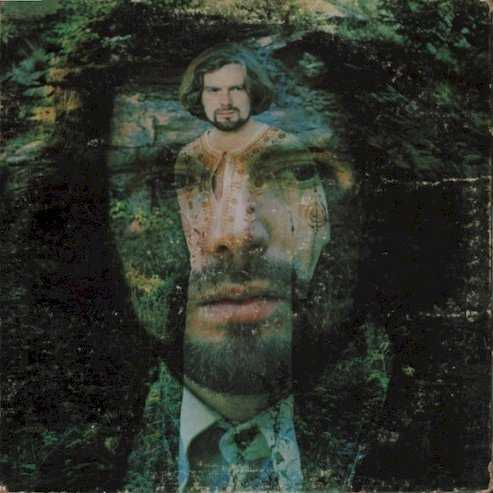 | Album: 4 of 43 Title: His Band and the Street Choir Released: 1970-10 Tracks: 12 Duration: 42:19 Scroll: Up Down Top Bottom 25% 50% 75% Spotify TrackSamples Wikipedia Allmusic AlbumCover | 1 Domino (03:09) 2 Crazy Face (03:00) 3 Give Me a Kiss (02:40) 4 I’ve Been Working (03:29) 5 Call Me Up in Dreamland (03:55) 6 I’ll Be Your Lover, Too (03:53) 7 Blue Money (03:48) 8 Virgo Clowns (04:14) 9 Gypsy Queen (03:18) 10 Sweet Jannie (02:12) 11 If I Ever Needed Someone (03:48) 12 Street Choir (04:49) |
| His Band and the Street Choir : Allmusic album Review : Released in 1970, Van Morrisons Moondance was a hit commercially and critically. Encouraged by his manager, Morrison and a sextet -- including three players from the Moondance sessions -- hit the studio and delivered His Band & the Street Choir in time for that years holiday season. Morrison responded to the pressure by relaxing into it. The feel here is loose, often celebratory. He digs deep into his long-held fascination with the New Orleans R&B tradition for inspiration. "Domino" is his highest charting single. The funky guitar lick, left-hand piano rumbling, driving, Memphis-style horns, and pumping bassline kick things off in grand party style. The ballad "Crazy Face," written in 1968, melds acoustic guitar, mandolin, and piano. Morrisons brittle, bluesy saxophone line and a grooving B-3 tip the balance toward R&B. "Give Me a Kiss" has a great Zigaboo Modeliste feel in the horn charts; Fats Domino gets referenced in Alan Hands piano stroll, and the punchy, doo-wopping tag in the chorus nods at Frankie Ford. "Ive Been Working" (which dates to Astral Weeks) is Morrison at his funky best, roaring above a cooking choogle. The acoustic guitar vamp is highlighted by swirling organ, and electric Meters-esque guitar and basslines. Drummer Dahaud Elias Sharr lays down tough breaks and fills throughout as jazzy horns frame the singer. "Call Me Up in Dreamland" features the loose-knit "street choir" (musicians, wives, girlfriends, etc.). Its built on the ragged, Celtic soul-gospel template that Morrison would continue to refer to. The intimate "Ill Be Your Lover Too," adorned only by acoustic guitar and whispering drums, is haunted with the slow-burn passion that would flow so easily on 1972s Saint Dominics Preview. Second single "Blue Money" is a Rhodes-and-brass driven blues that returns to the NOLA trick bag for fire. The poetic "Virgo Clowns" is painted in a lovely meld of 12-string acoustic guitars and bass clarinet. "Gypsy Queen" is slippery love song, with Morrison offering a gorgeous falsetto. The Celtic soul in "If I Ever Needed Someone" is highlighted by the same trio of backing vocalists that appeared on Moondances "Crazy Love." The closing title track draws on the swaggering, testifying gospel that inspired that albums "Caravan" (and, played back-to-back, seems to grow right out of it). The street choirs backing is sweeter, balanced by eloquent sax and harmonica breaks. As an album, His Band & the Street Choir may not equal Astral Weeks or Moondance, but the aim was never that lofty. That most of these songs have endured as fan favorites is testament enough to their quality. | ||
 | Album: 5 of 43 Title: Tupelo Honey Released: 1971-11 Tracks: 9 Duration: 40:47 Scroll: Up Down Top Bottom 25% 50% 75% TrackSamples Wikipedia Allmusic AlbumCover | 1 Wild Night (03:33) 2 (Straight to Your Heart) Like a Cannonball (03:42) 3 Old Old Woodstock (04:18) 4 Starting a New Life (02:10) 5 You’re My Woman (06:44) 6 Tupelo Honey (06:57) 7 I Wanna Roo You (Scottish Derivative) (03:27) 8 When That Evening Sun Goes Down (03:06) 9 Moonshine Whiskey (06:46) |
| Tupelo Honey : Allmusic album Review : Tupelo Honey is typical of Van Morrisons early-70s work in both sound and structure; after dispensing with the requisite hit -- here, the buoyant, R&B-inflected "Wild Night" -- he truly gets down to business, settling into a luminously pastoral drift typified by the nostalgic "Old Old Woodstock." At the heart of the record are a pair of stunning love songs, "Youre My Woman" and the hymn-like title cut, one of Morrisons most enduring and transcendent compositions. | ||
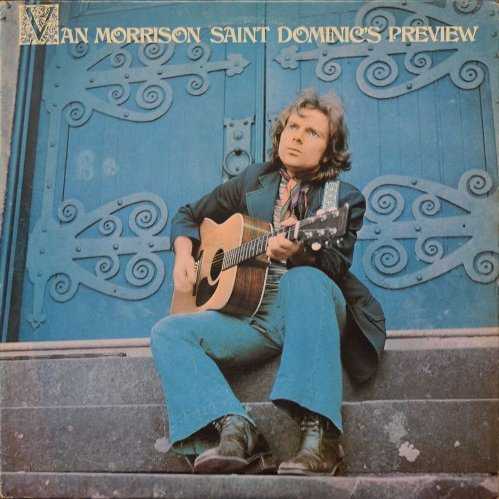 | Album: 6 of 43 Title: Saint Dominic’s Preview Released: 1972-07 Tracks: 7 Duration: 41:30 Scroll: Up Down Top Bottom 25% 50% 75% Spotify Wikipedia Allmusic AlbumCover | 1 Jackie Wilson Said (I’m in Heaven When You Smile) (02:59) 2 Gypsy (04:39) 3 I Will Be There (03:03) 4 Listen to the Lion (11:10) 5 Saint Dominic’s Preview (06:26) 6 Redwood Tree (03:05) 7 Almost Independence Day (10:05) |
| Saint Dominic’s Preview : Allmusic album Review : While less thematically and sonically cohesive than Van Morrisons prior albums, Saint Dominics Preview nonetheless hangs together on the strength of its songs, an intriguingly diverse collection which draws together the disparate threads of the singers recent work into one sterling package. The opener, "Jackie Wilson Said (Im in Heaven When You Smile)," is pure R&B jubilation, while the title cut, although essentially a rewrite of "Tupelo Honey," is stunning gospel-pop; both "Listen to the Lion" and "Almost Independence Day," meanwhile, mark a return to the epic mystical explorations of Morrisons earlier work and offer a pair of his most primal performances. | ||
 | Album: 7 of 43 Title: T.B. Sheets Released: 1973 Tracks: 8 Duration: 42:53 Scroll: Up Down Top Bottom 25% 50% 75% Wikipedia AlbumCover | 1 He Ain’t Give You None (05:07) 2 Beside You (06:10) 3 It’s All Right (05:04) 4 Madame George (05:22) 5 T.B. Sheets (09:39) 6 Who Drove the Red Sports Car? (05:22) 7 Ro Ro Rosey (03:05) 8 Brown Eyed Girl (03:04) |
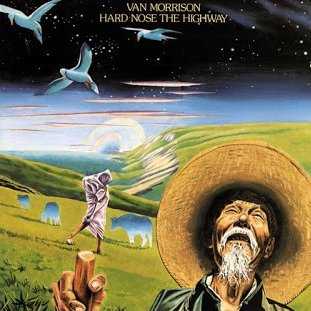 | Album: 8 of 43 Title: Hard Nose the Highway Released: 1973-08 Tracks: 8 Duration: 43:10 Scroll: Up Down Top Bottom 25% 50% 75% Spotify Allmusic Wikipedia AlbumCover | 1 Snow in San Anselmo (04:36) 2 Warm Love (03:23) 3 Hard Nose the Highway (05:14) 4 Wild Children (04:20) 5 The Great Deception (04:52) 6 Bein Green (04:21) 7 Autumn Song (10:36) 8 Purple Heather (05:43) |
| Hard Nose the Highway : Allmusic album Review : Although it marks a decline from the astonishing run of five great albums Van Morrison had made from 1968 through 1972, Hard Nose the Highway is still a respectable, if uneven, effort, notably containing "Snow in San Anselmo" (which features the Oakland Symphony Chamber Chorus) and "Warm Love." Nevertheless, it marks the end of Morrisons greatest period of creativity and accomplishment. | ||
 | Album: 9 of 43 Title: Veedon Fleece Released: 1974-10 Tracks: 10 Duration: 47:38 Scroll: Up Down Top Bottom 25% 50% 75% Spotify Wikipedia Allmusic AlbumCover | 1 Fair Play (06:15) 2 Linden Arden Stole the Highlights (02:37) 3 Who Was That Masked Man (02:54) 4 Streets of Arklow (04:22) 5 You Don’t Pull No Punches, but You Don’t Push the River (08:50) 6 Bulbs (04:18) 7 Cul de Sac (05:50) 8 Comfort You (04:24) 9 Come Here My Love (02:20) 10 Country Fair (05:42) |
| Veedon Fleece : Allmusic album Review : The final album of Van Morrisons remarkably prolific and innovative 1968-1974 period (followed by three years of silence), Veedon Fleece brings the singer full circle, returning him to the introspection and poignancy of Astral Weeks. Composed following his sudden divorce from wife Janet Planet and subsequent retreat from the U.S., the songs are subtle and Spartan, the performances deeply felt; though less tortured and cathartic than Astral Weeks, its a record fraught with emotional upheaval, as evidenced by such superior moments as "Linden Arden Stole the Highlights," "Who Was That Masked Man," and "You Dont Pull No Punches, But You Dont Push the River." That said, this is one of those -- and there are several -- forgotten classics in the Morrison catalog. Because it followed hot on the heels of his universally acclaimed double live album Its Too Late to Stop Now..., released only a month previous, this effort, like its likewise unheralded -- but equally wonderful -- studio effort Hard Nose the Highway, which was issued only six months before, the album suffered from a lack of exposure because of saturation in the marketplace rather than any lack in quality. Veedon Fleece is every bit the creative equal of its more famous predecessors. With its elegiac tone and deeply autobiographical lyrics, this was a Morrison who didnt so readily associate himself with the feel-good, peace, love, and rhythm & blues sound American audiences were used to. If any album reflects a real period of transition for an artist, its this one. Its brilliant. | ||
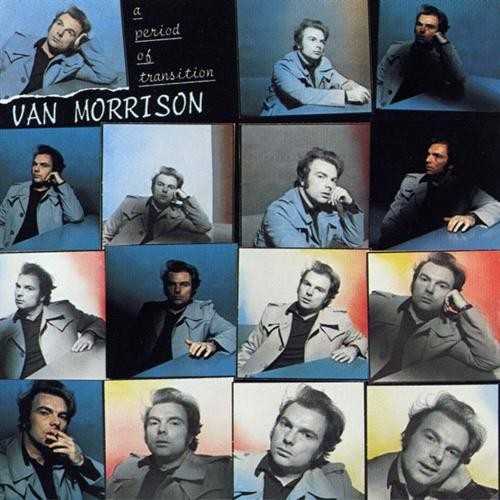 | Album: 10 of 43 Title: A Period of Transition Released: 1977 Tracks: 7 Duration: 34:06 Scroll: Up Down Top Bottom 25% 50% 75% Spotify Allmusic Wikipedia AlbumCover | 1 You Gotta Make It Through the World (05:11) 2 It Fills You Up (04:37) 3 The Eternal Kansas City (05:27) 4 Joyous Sound (02:50) 5 Flamingos Fly (04:45) 6 Heavy Connection (05:26) 7 Cold Wind in August (05:48) |
| A Period of Transition : Allmusic album Review : Titles rarely come as explicit as A Period of Transition, a record Van Morrison released three years after Veedon Fleece, an uncommonly long period of inactivity for this prolific artist. It was his longest rest, before or since, and in many ways, he emerges from a cocoon here, leaving behind the lushly dark introspection of Veedon Fleece for a mellow, good-natured R&B-flavored; singer/songwriter sound that may turn introspective but never feels dark -- its warm, welcoming, infused with spirituality and humor. Still, like any period of transition, this is somewhat tentative and uneven, with its best moments being, at best, minor masterpieces. Yet theres a charm to the album Morrison and co-producer Mac Rebennack have made, a laid-back organic feel that may not be exciting but its inviting -- all the more so when its seen as the transitional effort it is. | ||
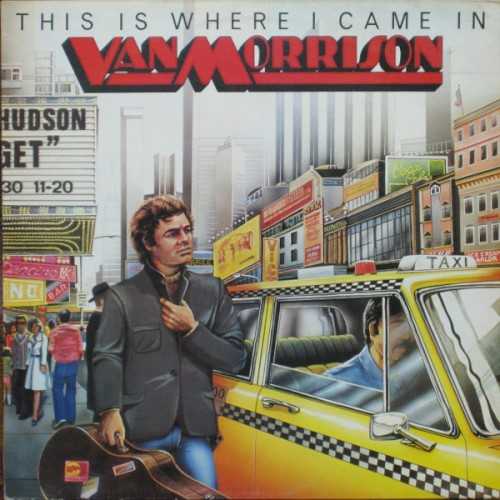 | Album: 11 of 43 Title: This Is Where I Came In Released: 1977 Tracks: 15 Duration: 1:05:50 Scroll: Up Down Top Bottom 25% 50% 75% AlbumCover | 1 Spanish Rose (03:11) 2 Goodbye Baby (Baby Goodbye) (02:53) 3 He Ain’t Give You None (05:15) 4 Beside You (06:14) 5 Madame George (05:26) 6 T.B. Sheets (09:34) 7 Brown Eyed Girl (03:07) 8 Send Your Mind (02:47) 9 The Smile You Smile (02:54) 10 The Back Room (05:30) 11 Ro Ro Rosey (03:08) 12 Who Drove The Red Sports Car (05:20) 13 It’s All Right (05:07) 14 Joe Harper Saturday Morning (02:53) 15 Midnight Special (02:31) |
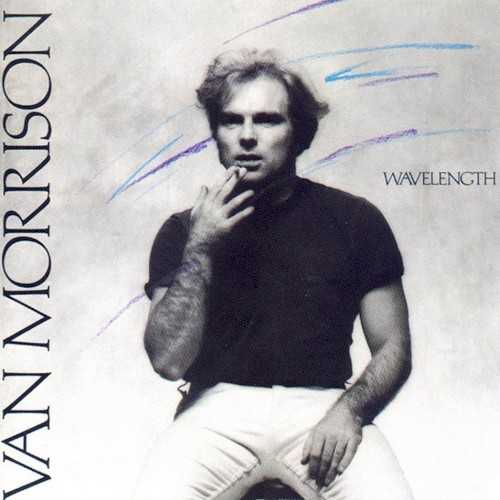 | Album: 12 of 43 Title: Wavelength Released: 1978 Tracks: 9 Duration: 49:58 Scroll: Up Down Top Bottom 25% 50% 75% Spotify TrackSamples Allmusic Wikipedia AlbumCover | 1 Kingdom Hall (06:01) 2 Checkin’ It Out (03:31) 3 Natalia (04:06) 4 Venice U.S.A. (06:36) 5 Lifetimes (04:16) 6 Wavelength (05:46) 7 Santa Fe / Beautiful Obsession (07:10) 8 Hungry for Your Love (03:44) 9 Take It Where You Find It (08:44) |
| Wavelength : Allmusic album Review : Wavelength essentially picks up where A Period of Transition left off, offering a focused, full-bodied alternative to that records warmly fuzzy lack of direction. Like that album, its hardly a major entry in his catalog, but there are signs that Van Morrison is finding his footing for his latter-day voice. Again, the primary appeal of this record is its atmosphere, a charmingly relaxed outing, high on mildly swinging mid-tempo numbers and round, welcoming ballads. Surely, an album of subtle pleasures like this is primarily for the converted, but once youre there, its hard to resist Wavelength. | ||
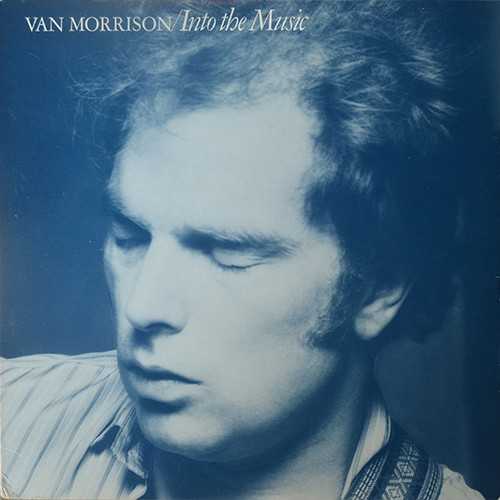 | Album: 13 of 43 Title: Into the Music Released: 1979 Tracks: 10 Duration: 49:47 Scroll: Up Down Top Bottom 25% 50% 75% Spotify Allmusic Wikipedia AlbumCover | 1 Bright Side of the Road (03:46) 2 Full Force Gale (03:15) 3 Steppin’ Out Queen (05:29) 4 Troubadours (04:39) 5 Rolling Hills (02:52) 6 You Make Me Feel So Free (04:07) 7 Angelou (06:49) 8 And the Healing Has Begun (07:59) 9 It’s All in the Game (04:39) 10 You Know What They’re Writing About (06:10) |
| Into the Music : Allmusic album Review : Into the Music may not seem like a great Van Morrison record, one of his very best, upon first listen, especially if youre trying to compare it to such masterpieces as Astral Weeks and Moondance, or even Tupelo Honey. Yet this is certainly one of his best records, one that is quietly winning and thoroughly ingratiating, sounding stronger, even irresistible, with each new spin. In a sense, this is the definitive post-classic-era Morrison, since it summarizes all of his attributes while showcasing each at a peak. Musically, this is a little harder and rootsier than its two predecessors, but only a little; this is still remarkably relaxed music, where the charm is in its ease of delivery and compositions. The difference, theres more grit in the performances, more substance in the songs, letting Van the craftsman shine through along with his spirituality and grace. There may be no masterworks on the level of his early-70s records, but these are deft, subtle songs that are full-bodied songs, unlike their counterparts on this albums immediate predecessors or successors. Theres little question that this is not a knockout record, and some could even be excused if they find its charms elusive -- but once youve entered Vans sizable cult, few records sound as much like Morrison as this, a record that served as culmination of where he was coming from and served as blueprint for where he was going. | ||
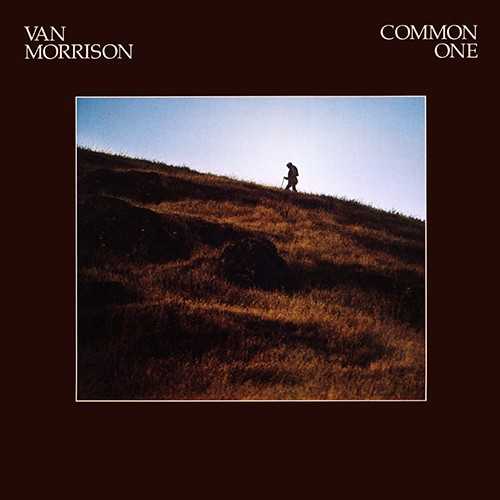 | Album: 14 of 43 Title: Common One Released: 1980-08 Tracks: 8 Duration: 1:10:41 Scroll: Up Down Top Bottom 25% 50% 75% Spotify Allmusic Wikipedia AlbumCover | 1 Haunts of Ancient Peace (07:11) 2 Summertime in England (15:37) 3 Satisfied (06:03) 4 Wild Honey (05:51) 5 Spirit (05:12) 6 When Heart Is Open (15:14) 7 Haunts of Ancient Peace (alternative take) (07:46) 8 When Heart Is Open (alternative take) (07:45) |
| Common One : Allmusic album Review : Van Morrison was working through one of his greatest -- yet least appreciated -- creative periods when he made this album, one that burrows deeply into an introspective jazz-rooted spiritual groove. With Mark Ishams lonely muted trumpet up front, listeners are in the jazz world immediately with "Haunts of Ancient Peace," merging perfectly with Morrisons idiosyncratic vocal style. A low-pressure soul-jazz organ riff lays down the base of the most easily assimilated track, "Satisfied," as Morrisons lyric indicates that he has reached a state of internal peace. "Wild Honey" has R&B; horn riffs over Philly-style strings, while "Spirit" mostly pursues a self-fulfillment path similar to that of "Satisfied." Ultimately, the record stands or falls upon two remarkable, gigantic 15-minute pieces, "Summertime in England" and "When Heart Is Open." The propulsive opening of "Summertime" drops names of Morrisons favorite poets and authors; the track teeters upon indulgence but you are drawn in by Morrisons obsessions with lines and phrases like "common one" and "let your red robe go," his voice becoming a twin brother of arranger Pee Wee Ellis riffing sax. Lonely horns over the hilltops open "When Heart Is Open," and it begins to resemble a sequel to Miles Davis treatment of "In a Silent Way," setting a peaceful, mesmerizing mood that carries you through its enormous length to the end of the record. No wonder the rock critics of the time didnt get it; this is music outside the pop mainstream, and even Morrisons own earlier musical territory. But it retains its trancelike power to this day. | ||
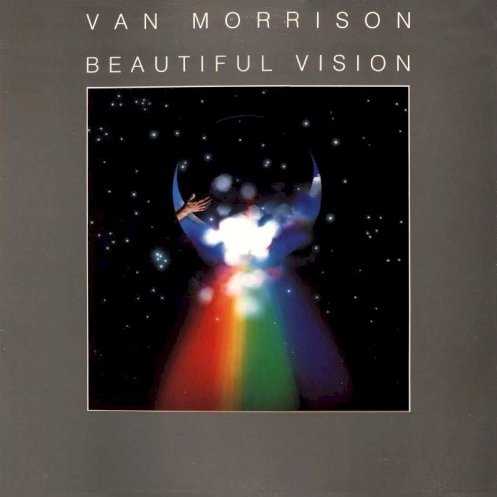 | Album: 15 of 43 Title: Beautiful Vision Released: 1982-01 Tracks: 10 Duration: 45:43 Scroll: Up Down Top Bottom 25% 50% 75% Spotify Allmusic Wikipedia AlbumCover | 1 Celtic Ray (04:12) 2 Northern Muse (Solid Ground) (04:05) 3 Dweller on the Threshold (04:47) 4 Beautiful Vision (04:10) 5 She Gives Me Religion (04:21) 6 Cleaning Windows (04:43) 7 Vanlose Stairway (04:13) 8 Aryan Mist (04:00) 9 Across the Bridge Where Angels Dwell (04:31) 10 Scandinavia (06:37) |
| Beautiful Vision : Allmusic album Review : Beautiful Vision shares much sonically with its predecessor, Common One, being heavy on long, winding song-poems, moderate tempos, dense lyricism, and dated production. Still, this winds up being a stronger articulation of what Morrison was attempting to do on Common One -- much like how Wavelength got A Period of Transition right. That doesnt mean that this is a particularly easy album to warm to, since Morrison seems to be consciously creating an insular world here, only of interest to those willing to delve deeply into his own world, letting his elliptical melodies charm instead of frustrate, to let the leisurely pace seduce rather than lull. Once you do that, the record reveals such charming moments as "She Gives Me Religion," "Beautiful Vision," and "Cleaning Windows," a skipping light R&B; tune that became one of his latter-day standards. Too much of Beautiful Vision is the product of a willfully idiosyncratic yet oddly measured vision to make it essential for anyone other than diehards, but moments such as that make it worth a listen. | ||
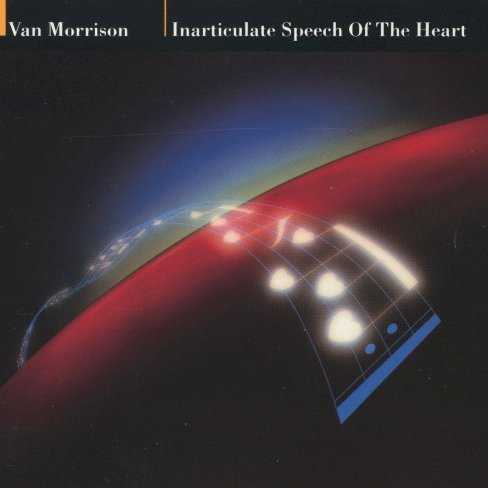 | Album: 16 of 43 Title: Inarticulate Speech of the Heart Released: 1983-03 Tracks: 11 Duration: 47:35 Scroll: Up Down Top Bottom 25% 50% 75% Spotify Allmusic Wikipedia AlbumCover | 1 Higher Than the World (03:44) 2 Connswater (04:10) 3 River of Time (03:03) 4 Celtic Swing (05:04) 5 Rave On, John Donne (05:19) 6 Inarticulate Speech of the Heart No. 1 (04:55) 7 Irish Heartbeat (04:41) 8 The Street Only Knew Your Name (03:37) 9 Cry for Home (03:45) 10 Inarticulate Speech of the Heart No. 2 (03:55) 11 September Night (05:17) |
| Inarticulate Speech of the Heart : Allmusic album Review : Almost a forgotten album, Inarticulate Speech of the Heart takes listeners to the deepest, most inward areas of Van Morrisons renegade Irish soul, the culmination of his spiritual jazz period and also -- perhaps not coincidentally -- the last record he made for Warner Bros. Four of the 11 tracks are moody instrumentals, which might partly explain the indifference of many rock critics toward the album, although the albums very title gives a clue to their presence. The mood is predominantly mellow but never flaccid or complacent; there is a radiance that glows throughout. "Higher Than the World" is simply one of the most beautiful recordings Morrison ever made, with Mark Ishams choir-like synthesizer laying down the lovely backdrop. The instrumental "Connswater" is the most Irish-flavored piece that Morrison had made up to that point, and would continue to be until he recorded with the Chieftains in 1988. "Rave on, John Donne" -- in part a recitation invoking a roster of writers over a supple two-chord vamp -- seems to have had the longest afterlife, reappearing in Morrisons live shows and greatest-hits compilations. "The Street Only Knew Your Name" is the only piece that could be classified as a rocker, tempered even here by the synthesizer overlays. The record sold poorly, but many of those who bought it consider it one of the most cherished items in their Van Morrison collections. | ||
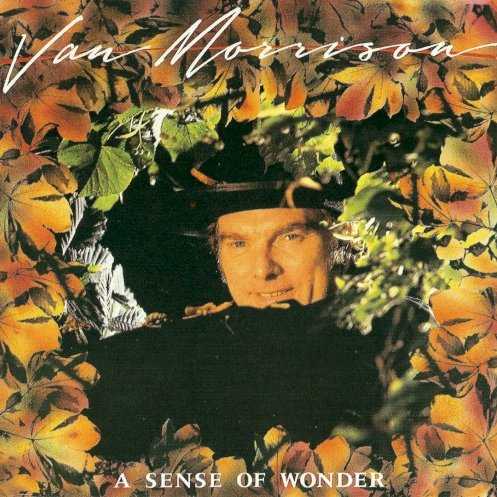 | Album: 17 of 43 Title: A Sense of Wonder Released: 1984 Tracks: 12 Duration: 53:28 Scroll: Up Down Top Bottom 25% 50% 75% Spotify Allmusic Wikipedia AlbumCover | 1 Tore Down a La Rimbaud (04:12) 2 Ancient of Days (03:40) 3 Evening Meditation (04:14) 4 The Master’s Eyes (04:03) 5 What Would I Do? (05:13) 6 A Sense of Wonder (07:12) 7 Boffyflow and Spike (03:07) 8 If You Only Knew (02:57) 9 Let the Slave Incorporating the Price of Experience (05:29) 10 A New Kind of Man (03:21) 11 Crazy Jane on God (alternative take) (03:50) 12 A Sense of Wonder (alternative take) (06:08) |
| A Sense of Wonder : Allmusic album Review : Van Morrisons U.S. label debut with Polygram (which had issued his Live at the Grand Opera House Belfast album in England earlier) is a strong effort, mixing some of his familiar influences -- R&B;, poetry, mysticism -- on such characteristic tracks as "Tore Down a la Rimbaud." It might be fair to say that, by now, Morrisons fans had heard what he had to say and the rest was just repetition, but he continued to write and perform at a high level at this mature stage in his career. | ||
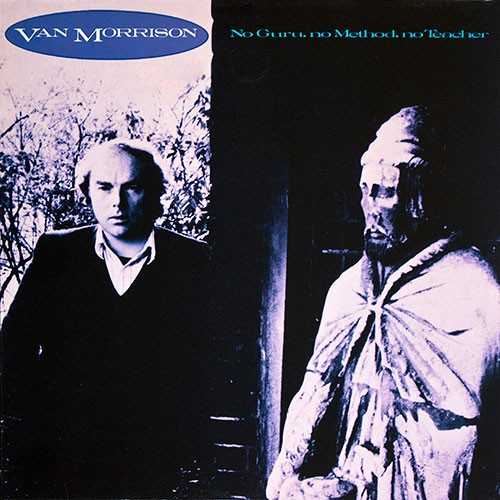 | Album: 18 of 43 Title: No Guru, No Method, No Teacher Released: 1986-07 Tracks: 10 Duration: 51:09 Scroll: Up Down Top Bottom 25% 50% 75% Spotify Allmusic Wikipedia AlbumCover | 1 Got to Go Back (05:00) 2 Oh the Warm Feeling (03:19) 3 Foreign Window (05:22) 4 A Town Called Paradise (06:15) 5 In the Garden (05:47) 6 Tir Na Nog (07:16) 7 Here Comes the Knight (03:43) 8 Thanks for the Information (07:18) 9 One Irish Rover (03:31) 10 Ivory Tower (03:34) |
| No Guru, No Method, No Teacher : Allmusic album Review : No Guru, No Method, No Teacher was Van Morrisons second studio album for Mercury, following A Sense of Wonder and Live at the Grand Opera House Belfast. Recorded at the height of his spiritual period, it is among the most empathic records in his career. Morrisons seeking of and obsession with "reclaiming the previous" is everywhere, beginning with the sets opener, "Got to Go Back." With a striking wide-open acoustic piano, accompanied by an oboe solo (by Kate St. John) twinned by Richie Buckleys soprano saxophone and an acoustic guitar, Morrison offers, in waltz tempo, these reflections: "When I was a young boy back in Orangefield/I used to look out my classroom window and dream/And then go home and listen to Ray sing/I Believe to My Soul after school/Oh that love that was within me/You know it carried me through/Well it lifted me up and it filled me/Got to go back/Got to go back/To the feeling." The album is consumptive in its focus on spiritual innocence as it struggles with notions of God and liberation from earthly constraints. That said, the struggle is visceral; he is immersed in the latter by the sheer physicality of his music even at its most ethereal. "Oh the Warm Feeling" underscores the notion of memory and lost innocence amid lovely oboe, acoustic guitar, organ, and vibes as Morrison sings in the past tense, juxtaposing it against the present. The Celtic soul that comes elegiacally forth from "Foreign Window" is among the albums finest tracks. Nakedly spiritual, Morrisons poetic lyrics addressed to an Other come out of a past that is simultaneously part of his eternal present in a love song; its multivalent textural and dynamic arrangement is gorgeous. This album is an extended meditation that reflects a willingness to stay inside the cloud of the souls tensions as it seeks; the melodies are often mantra-like. "A Town Called Paradise," however, is the exception. It is a classic midtempo rocker that seems to come from as far back as Astral Weeks with its woven, pulsing layers of acoustic guitars, though punctuated by female backing vocals, tenor saxophone, and an electric solo guitar. Interestingly, there is a play on words here, called "Here Comes the Knight," which doesnt reference the earlier version he recorded with Them, and is elliptical in terms of its lyrics. There are some longer selections here as well, in the Celtic R&B; of "Tir Na Nog"; the glorious "In the Garden" (a concert staple); and the righteous frustration in "Thanks for the Information," detailing the pitfalls of the spiritual path. Combined, these tunes make for a deeply satisfying album in the least and a major -- if provocative for casual fans -- Morrison work that hones a fine point on the songwriters search for transformation and transcendence as part and parcel of the spiritual process, while making music in real time. | ||
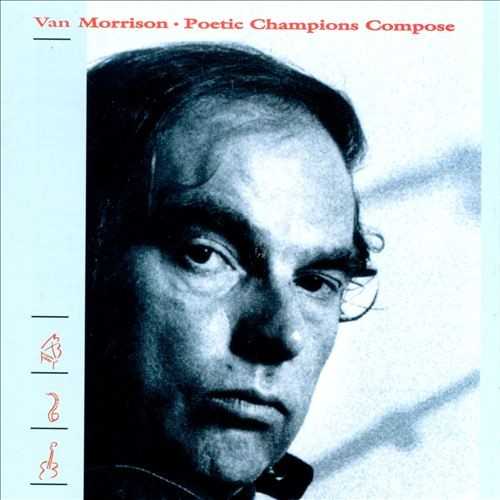 | Album: 19 of 43 Title: Poetic Champions Compose Released: 1987 Tracks: 11 Duration: 48:06 Scroll: Up Down Top Bottom 25% 50% 75% Spotify Allmusic Wikipedia AlbumCover | 1 Spanish Steps (05:23) 2 The Mystery (05:17) 3 Queen of the Slipstream (04:54) 4 I Forgot That Love Existed (04:20) 5 Sometimes I Feel Like a Motherless Child (04:29) 6 Celtic Excavation (03:20) 7 Someone Like You (04:07) 8 Alan Watts Blues (04:25) 9 Give Me My Rapture (03:46) 10 Did Ye Get Healed? (04:07) 11 Allow Me (03:54) |
| Poetic Champions Compose : Allmusic album Review : If the title didnt tip you off, the opening five-minute jazz instrumental "Spanish Steps" certainly reveals that Poetic Champions Compose is an art record. Of course, Van Morrison has been making art records since at least Inarticulate Speech of the Heart, perhaps Common One, so that shouldnt come as a surprise. What is a bit of a shock is that Morrison begins to shake off his self-conscious straitjacket here, letting a little more grit into the music, even if the record still is firmly ensconced in mid-tempos and ballads, with only Vans voice (soulful, yet not histrionic) to pull you in. Much of this tends to float by, with only the occasional song ("I Forgot That Love Existed," "Did Ye Get Healed?") distinguishing itself. The overly mellow atmosphere and Vans arch artiness may not make it universally appealing, yet this record is warmer, stronger than many of its predecessors, one of his highlights from the 80s. | ||
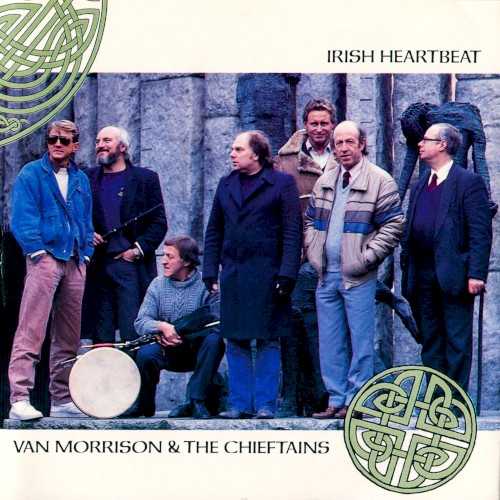 | Album: 20 of 43 Title: Irish Heartbeat Released: 1988-06-20 Tracks: 10 Duration: 38:59 Scroll: Up Down Top Bottom 25% 50% 75% Spotify Allmusic AlbumCover | 1 Star of the County Down (02:42) 2 Irish Heartbeat (03:51) 3 Tá Mo Chleamhnas Déanta (03:31) 4 Raglan Road (04:56) 5 She Moved Through the Fair (04:44) 6 I’ll Tell Me Ma (02:30) 7 Carrickfergus (04:25) 8 Celtic Ray (03:41) 9 My Lagan Love (05:20) 10 Marie’s Wedding (03:15) |
| Irish Heartbeat : Allmusic album Review : On their wide musical journeys in the 80s, the Chieftains decided to collaborate with Van Morrison, who had an artistic peak at the end of the decade. The result was a highlight in both of their 80s productions: the traditional Irish Heartbeat, with Morrison on lead vocals and a guest appearance from the Mary Black. Morrisonand Moloneys production puts the vocals up front with a sparse background, sometimes with a backdrop of intertwining strings and flutes, the same way Morrison would later use the Chieftains on his Hymns to the Silence. The arrangement and the artists engaged singing leads to a brilliant result, and these Irish classics are made very accessible without being transformed into pop songs. Of the ten tracks included, eight are Irish trads. The title track and "Celtic Ray" are written by Morrison, and also appear on Beautiful Vision and Inarticulate Speech of the Heart, but since they are written in a pseudo traditional style, the folksy treatment given them by the Chieftains makes these versions sound as if they were the originals. | ||
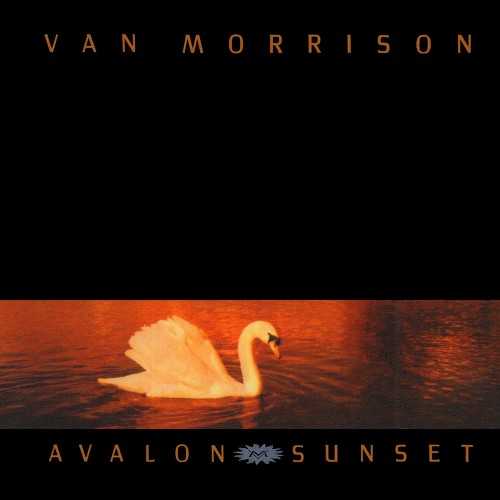 | Album: 21 of 43 Title: Avalon Sunset Released: 1989-05-19 Tracks: 12 Duration: 52:44 Scroll: Up Down Top Bottom 25% 50% 75% Spotify Allmusic AlbumCover | 1 Whenever God Shines His Light (04:54) 2 Contacting My Angel (04:58) 3 I’d Love to Write Another Song (02:55) 4 Have I Told You Lately (04:20) 5 Coney Island (02:03) 6 I’m Tired Joey Boy (02:33) 7 When Will I Ever Learn to Live in God (05:38) 8 Orangefield (03:52) 9 Daring Night (06:14) 10 These Are the Days (05:19) 11 Whenever God Shines His Light (alternative take) (03:52) 12 When the Saints Go Marching In (06:04) |
| Avalon Sunset : Allmusic album Review : Van Morrison scored one of his biggest commercial successes with Avalon Sunset, a record highlighted by the gorgeous "Have I Told You Lately," one of his most heartfelt love songs and a major radio hit which helped introduce his music to a new generation of listeners. Not a consistently strong LP, Avalon Sunset is nevertheless the work of a master craftsman, its lush orchestration and atmospheric production casting an irresistibly elegant spell; a deeply spiritual record, it also includes the standout opener, "Whenever God Shines His Light," a collaboration with Cliff Richard. | ||
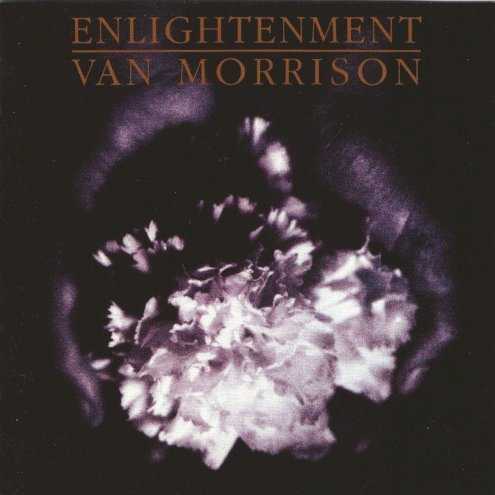 | Album: 22 of 43 Title: Enlightenment Released: 1990 Tracks: 10 Duration: 51:04 Scroll: Up Down Top Bottom 25% 50% 75% Spotify TrackSamples Wikipedia Allmusic AlbumCover | 1 Real Real Gone (03:41) 2 Enlightenment (04:06) 3 So Quiet in Here (06:17) 4 Avalon of the Heart (04:50) 5 See Me Through (06:20) 6 Youth of 1,000 Summers (03:44) 7 In the Days Before Rock ’n’ Roll (08:12) 8 Start All Over Again (04:14) 9 She’s My Baby (05:17) 10 Memories (04:20) |
| Enlightenment : Allmusic album Review : Throughout Van Morrisons long career, his hit records have usually been followed by more obscure ones, so it should come as no surprise that 1990s Enlightenment was more subtle than its hit predecessor, Avalon Sunset. The intention of Enlightenment is marked by its first two songs, the scorching Celtic rhythm & blues of the opener, "Real Real Gone," and the pained spiritual yearning of the title track, a midtempo ballad drenched in nylon-string guitars, atmospheric synths, a gorgeous melody, and a tough Wurlitzer piano. The first tune, with its raucous horns, B-3, and crackling hi-hat and snare work, comes from the shouting R&B singer weve known since Moondance. Its addressed to a nameless other, with a call-and-response horn section answering his every line like it was the gospel truth. The slippery bridge-like lines at the ends of the verses and his invocation of truths from the gods of soul -- "And Sam Cooke is on the radio and the night is filled with space/Wilson Pickett said In the Midnight Hour/Thats when my love comes tumblin down/Solomon Burke said, If you need me, why dont you call me/James Brown said, When youre tired of what you got, try me/ Gene Chandler said, Theres a rainbow in my soul" -- suggest hes almost found the truth in these moments from his past, a past that haunts him and whose secrets pour from his mouth when he sings, though they elude him. We can add to these, "Van Morrison said, Real, real gone/I cant stand up by myself/Dont you know I need your help/Im real real gone." This is only underscored in "Enlightenment," where these koans mix with those of the Buddhist masters. Some of them come literally from Zen, others from the pit of the protagonists life: "Im in the here and now/And Im meditating/Im still suffering/But thats my problem...wake up." The rest of the album becomes a suite, with these themes underscored everywhere through an ethereal blend of sonic atmospheres and carefully crafted melodies that seem to come from the oblique shadow of the soul as it wanders, discovers, and sheds its trappings, still seeking. Theres the folksy Irish folk-pop of "So Quiet in Here" and the dramatic yet elegiac regality of "Avalon of the Heart," where the ghosts of Keats, Shelley, and Yeats all meet to confer and wail. These songs are kissed further down the road by the contemplative jazz in "See Me Through," a sung prayer that is partially obscured by its chant-like melody. Morrison also does his trademark evocation of memory in the sprightly gospel of "Youth of 1,000 Summers." Jazz returns in the Friday night strut of "Start All Over Again," where sadness and hope mix inextricably. "Shes My Baby," with its nylon-string guitars and taut snares, is breezy Celtic soul at its best, expressing an adult lovesickness in song. Enlightenment, like Avalon Sunset, marks one of Morrisons best productions, if not albums. Its sound is warm, enveloping, and humid. If the songs seem to bleed together a bit, thats on purpose; its meant to be taken as a whole. Its an overlooked gem. | ||
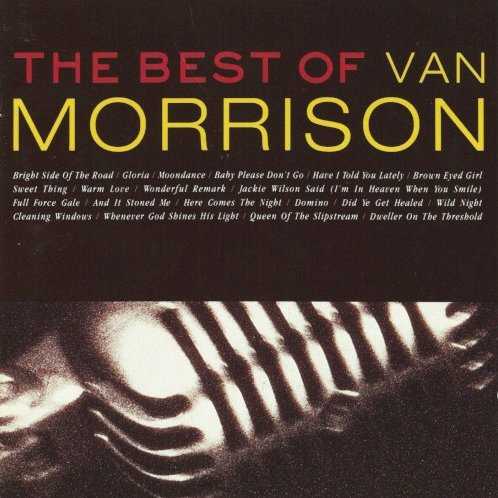 | Album: 23 of 43 Title: The Best of Van Morrison Released: 1990-01 Tracks: 21 Duration: 1:19:46 Scroll: Up Down Top Bottom 25% 50% 75% Wikipedia Allmusic AlbumCover | 1 Bright Side of the Road (03:46) 2 Gloria (02:36) 3 Moondance (04:34) 4 Baby Please Don’t Go (02:42) 5 Have I Told You Lately (04:20) 6 Brown Eyed Girl (03:04) 7 Days Like This (03:13) 8 Sweet Thing (04:23) 9 Warm Love (03:23) 10 Wonderful Remark (03:58) 11 Jackie Wilson Said (I’m in Heaven When You Smile) (02:59) 12 Full Force Gale (03:15) 13 And It Stoned Me (04:32) 14 Here Comes the Night (02:47) 15 Domino (03:09) 16 Did Ye Get Healed? (04:07) 17 Wild Night (03:33) 18 Cleaning Windows (04:43) 19 Whenever God Shines His Light (04:54) 20 Queen of the Slipstream (04:54) 21 Dweller on the Threshold (04:47) |
| The Best of Van Morrison : Allmusic album Review : For an artist whos doggedly album-oriented, plus a songwriter who revels in subtlety, Van Morrison doesnt seem like a logical candidate for a successful greatest-hits compilation. Nevertheless, The Best of Van Morrison is a crackerjack compilation, tracing Van the Man from his days with Them, through his best-known tunes ("Brown-Eyed Girl," "Moondance," "Blue Money," "Wild Night"), to highlights from the 70s and 80s cult efforts, topped off by "Wonderful Remark," a song first heard on the King of Comedy soundtrack. This collection makes Morrisons work seem a little more immediate and accessible than it usually is, but thats a blessing, since it provides a great summary of his hits and a nice introduction for the curious. Yes, it could have dug deeper into the catalog, but as a sampler, it cant be faulted. | ||
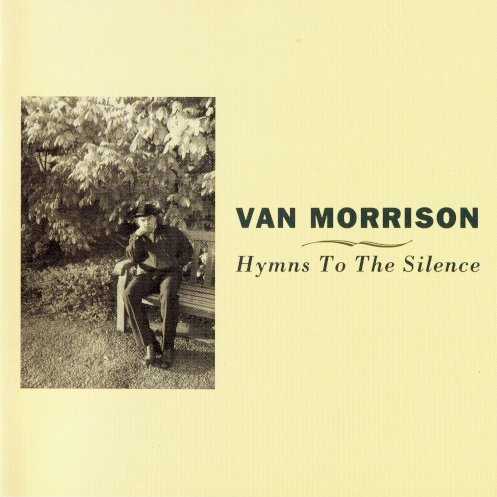 | Album: 24 of 43 Title: Hymns to the Silence Released: 1991-09-24 Tracks: 21 Duration: 1:35:56 Scroll: Up Down Top Bottom 25% 50% 75% Spotify Allmusic Wikipedia AlbumCover | 1 Professional Jealousy (03:46) 2 Im Not Feeling It Anymore (06:36) 3 Ordinary Life (03:34) 4 Some Peace of Mind (06:27) 5 So Complicated (03:21) 6 I Cant Stop Loving You (03:58) 7 Why Must I Always Explain? (03:53) 8 Village Idiot (03:16) 9 See Me Through, Part II (Just a Closer Walk with Thee) (03:13) 10 Take Me Back (09:09) 1 By His Grace (02:37) 2 All Saints Day (02:32) 3 Hymns to the Silence (09:43) 4 On Hyndford Street (05:21) 5 Be Thou My Vision (03:51) 6 Carrying a Torch (04:28) 7 Green Mansions (03:42) 8 Pagan Streams (03:40) 9 Quality Street (03:59) 10 It Must Be You (04:11) 11 I Need Your Kind of Loving (04:30) |
| Hymns to the Silence : Allmusic album Review : Morrisons best album of the 90s still casually hangs out in the spiritual world that served as his home for most of his 80s material, but the mystical touches are at least kept in check for a good deal of the time. Better still is that Morrison sings with a passion that had crawled into laziness during big, and crucial, chunks of his career (most prominently the early to mid-80s). The songs, or more accurately (as the title makes very clear) hymns, combine the elements that have guided Morrisons best albums -- R&B;, folk, pop, Celtic, rock, even gospel -- for a satisfying journey through the mystic and the real. Its double-disc length, however, is a bit off-putting; a spirited rewrite of his last album (1990s Enlightenment) really doesnt need this much space to make its point. But his rambling musings (like the soulfully suave "Why Must I Always Explain") retain a compelling power. | ||
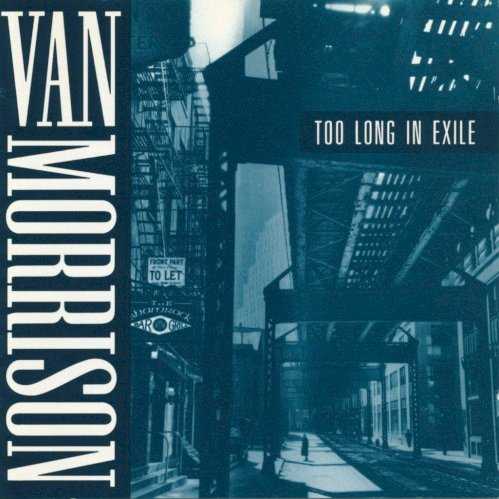 | Album: 25 of 43 Title: Too Long in Exile Released: 1993-06-08 Tracks: 15 Duration: 1:17:31 Scroll: Up Down Top Bottom 25% 50% 75% Spotify Allmusic Wikipedia AlbumCover | 1 Too Long in Exile (06:18) 2 Big Time Operators (06:03) 3 Lonely Avenue (06:24) 4 Ball & Chain (05:36) 5 In the Forest (04:38) 6 Till We Get the Healing Done (08:23) 7 Gloria (05:19) 8 Good Morning Little Schoolgirl (04:07) 9 Wasted Years (03:57) 10 The Lonesome Road (03:16) 11 Moody’s Mood for Love (02:51) 12 Close Enough for Jazz (instrumental) (02:39) 13 Before the World Was Made (04:24) 14 I’ll Take Care of You (05:19) 15 Instrumental / Tell Me What You Want (08:09) |
| Too Long in Exile : Allmusic album Review : The title track is a mundane cross between contemporary blues and soft rock with a chorus repeated ad nauseam. Next up is the gently rocking blues of "Big Time Operator" featuring Georgie Fame on organ. Morrison bites into a delicious cover of Ray Charles "Lonely Avenue." John Lee Hooker appears on two striking duets, "Gloria" and "Wasted Years." Sonny Boy Williamsons "Good Morning Little School Girl" is revisited and sped up a bit with nice harmonica solo by Morrison. Throughout, Morrisons raw vocal cords are sufficiently dramatic to bring these rhythmic stories to life. This is an earthy departure from his two previous pop efforts. | ||
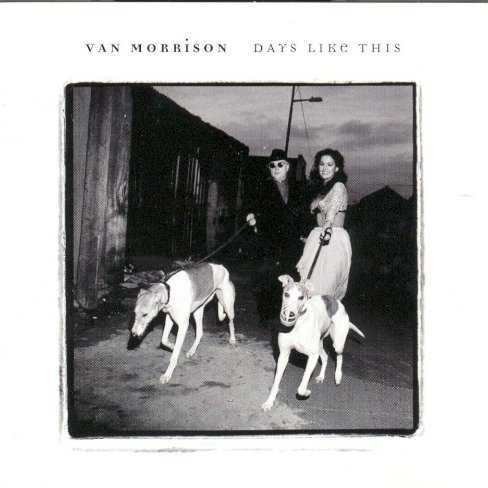 | Album: 26 of 43 Title: Days Like This Released: 1995-06-05 Tracks: 12 Duration: 58:05 Scroll: Up Down Top Bottom 25% 50% 75% Spotify Allmusic Wikipedia AlbumCover | 1 Perfect Fit (04:36) 2 Russian Roulette (04:00) 3 Raincheck (05:54) 4 You Don’t Know Me (04:35) 5 No Religion (05:17) 6 Underlying Depression (04:38) 7 Songwriter (02:51) 8 Days Like This (03:13) 9 I’ll Never Be Free (03:41) 10 Melancholia (03:58) 11 Ancient Highway (08:55) 12 In the Afternoon (06:23) |
| Days Like This : Allmusic album Review : Van Morrisons 22nd album of new studio material will have a familiar sound to anyone who has followed his career thus far. The songs are set to steady mid-tempo grooves, with tasty guitar and organ solos and warm horn charts, over which Morrison sings in his butterscotch baritone, employing his characteristic slurs and repetitions, exploring topics that have interested him over the years. If there is any difference from earlier works, it is one of degree: Days Like This is typically introspective and given over to spiritual, psychological, and romantic concerns, but its songs are unusually straightforward. Beginning with a direct, up-tempo love song, "Perfect Fit," Morrison provides a statement of purpose in "Raincheck" ("Wont let the bastards get me down...I dont fade away, unless I want to"), yet confesses to doubt ("Underlying Depression," "Melancholia"). He matter-of-factly describes his profession ("Songwriter"), and discounts spirituality, at least in formal terms ("No Religion"), though in the extended song "Ancient Highway" he prays to "my higher self." In the title song, he turns the usual cliché on its head -- the "Days Like This" he means are the good ones, "when everything falls into place like the flick of a switch." Morrison changes the pace with two covers of 1950s oldies, the 56 Eddy Arnold hit "You Dont Know Me," and the 50 Kay Starr and Tennessee Ernie Ford hit "Ill Never Be Free," on both of which he duets with his daughter Shana. As he approaches 50, Van Morrison remains interested in the same subjects and is able to sing about them with the same forcefulness. "I cleaned up my diction, I had nothing left to say," he confesses at one point. Nothing new, perhaps, but on Days Like This Morrison says some of the same things with a new clarity. | ||
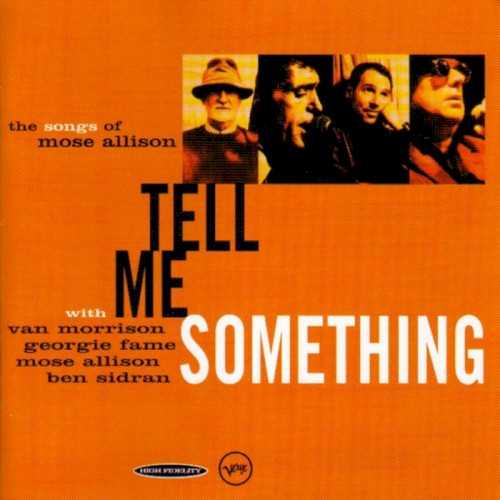 | Album: 27 of 43 Title: Tell Me Something: The Songs of Mose Allison Released: 1996-10-08 Tracks: 13 Duration: 36:56 Scroll: Up Down Top Bottom 25% 50% 75% Spotify Allmusic AlbumCover | 1 One of These Days (03:18) 2 You Can Count on Me (to Do My Part) (03:22) 3 If You Live (03:47) 4 Was (03:28) 5 Look Here (02:09) 6 City Home (03:26) 7 No Trouble Livin’ (02:15) 8 Benediction (03:01) 9 Back on the Corner (02:23) 10 Tell Me Something (02:40) 11 I Don’t Want Much (02:03) 12 News Nightclub (02:43) 13 Perfect Moment (02:13) |
| Tell Me Something: The Songs of Mose Allison : Allmusic album Review : Great idea on paper -- invite rocks Van Morrison, his then-organ/vocal-sidekick Georgie Fame, singer/pianist/producer Ben Sidran, and Mose Allison himself to compile a celebration of one of the most delightfully idiosyncratic songwriters of our time. And these are serious Allison buffs indeed, for they chose tunes from the back catalog that Mose rarely performed live in the 90s, with hardly a well-known Allison standard in the batch (the exception being "I Dont Want Much"). The hang-up is that Allisons own performances over the decades are so unique and right for their material that they pose a creative problem for anyone who wants to give these songs a different slant. Accordingly, with one exception, these guys fall back upon imitating the master, bowing low and not really saying anything new. Sidran is an outright Allison vocal clone -- hes got all of the slides, accents, and hip attitudes down pat -- though his piano doesnt sound anything like Allisons. Fame is not quite as literal, and he seems a bit stodgier by comparison. Meanwhile, Van the Man just does his own thing, paying little mind to the Mose manner, bending these tunes to his will, and pulling it off in style. Moses participation consists of a couple of loose, chummy duets with Morrison on "I Dont Want Much" and "Perfect Moment." The band is a small combo that you can imagine playing in an English pub, with saxophonist Pee Wee Ellis and trumpeter Guy Barker giving the sound an R&B; flavor. Its a good record actually, but it makes you aware of why there hadnt been many Mose tributes before. How can one compete when the creator is still alive and swinging? | ||
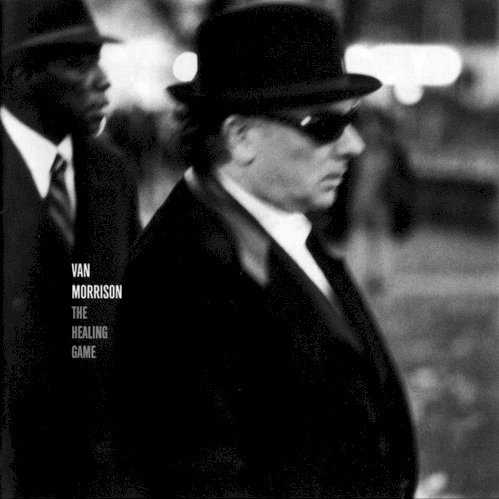 | Album: 28 of 43 Title: The Healing Game Released: 1997-03 Tracks: 10 Duration: 53:40 Scroll: Up Down Top Bottom 25% 50% 75% Spotify Allmusic Wikipedia AlbumCover | 1 Rough God Goes Riding (06:18) 2 Fire in the Belly (06:34) 3 This Weight (04:37) 4 Waiting Game (05:56) 5 Piper at the Gates of Dawn (03:53) 6 Burning Ground (05:38) 7 It Once Was My Life (05:10) 8 Sometimes We Cry (05:14) 9 If You Love Me (05:01) 10 The Healing Game (05:16) |
| The Healing Game : Allmusic album Review : Van Morrison never stopped recording during the 1990s, but for a little while it seemed as if he was disconnected from his muse. It wasnt so much his series of jazz cover albums -- hed return to this vein often in subsequent decades -- but his songwriting that showed signs bitterness, particularly on 1995s Days Like This, where he seemed dismissive of the very notion of being a songwriter. In that light, its hard not to see 1997s The Healing Game as a rejuvenation. Indeed, the albums very title suggests that Morrison is in the process of mending fences and reconnecting with a sense of joy, a process that began during his deep dive into Mose Allison and other bluesy jazz artists in the mid-90s. Morrison retains that sense of swing on The Healing Game -- he also retains keyboardist Georgie Fame, who would become a fixture on Morrisons albums over the next two decades -- and it invigorates a set of songs that arent necessarily all that different from what hes been writing as of late; hes still specializing in ballads, blues, and folk-rock colored by R&B.; The subtle differences make a difference, though, whether they lie in the lyrics or, especially, the music, which feels warmer and more relaxed than the albums relatively recent companions. Morrison seems at home within the easy grooves of The Healing Game, and while that alone is enough to make the album worth revisits, its also true the album boasts a sturdy selection of songs, highlighted by the meditative title track, the searching "Rough God Goes Riding," and the impassioned "Fire in the Belly." | ||
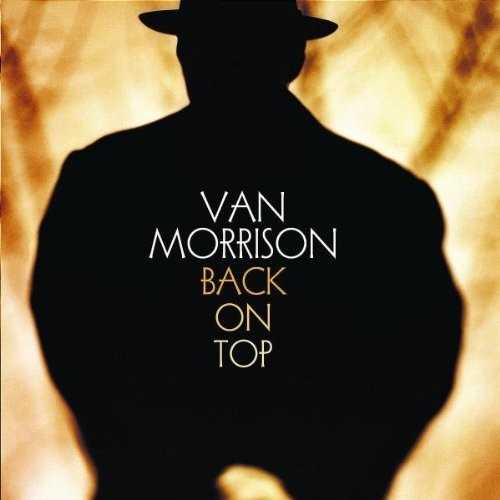 | Album: 29 of 43 Title: Back on Top Released: 1999-03-09 Tracks: 12 Duration: 1:02:43 Scroll: Up Down Top Bottom 25% 50% 75% Spotify Wikipedia Allmusic AlbumCover | 1 Goin’ Down Geneva (04:28) 2 Philosophers Stone (06:08) 3 In the Midnight (05:10) 4 Back on Top (04:24) 5 When the Leaves Come Falling Down (05:42) 6 High Summer (05:15) 7 Reminds Me of You (05:42) 8 New Biography (05:25) 9 Precious Time (03:49) 10 Golden Autumn Day (06:40) 11 Philosophers Stone (alternative version) (04:52) 12 Valley of Tears (05:04) |
| Back on Top : Allmusic album Review : After so many songs ranging through so many styles, it is a pleasure to have Van Morrison return to the music that suits him so well. Steeped in blues and R&B, Back on Top finds Morrison celebrating life and its pleasures to the limit. The up-tempo "New Biography" takes a sharp stab at those who say they know him just so they can see their names in print. "Golden Autumn Day" is a near perfect summation of his music up to today and provides a rare glimpse into his personal life as well. On this and other cuts, Morrison sounds like hes taken a lesson or two from tourmate Bob Dylan, and theres a thread that runs from Dylans recent work right on through to this one. "Goin Down Geneva" is a great blues cut, while "In the Midnight" is bedroom music, pure and simple. "Back on Top," the title track, swings along with such ease that youre tempted to check and make sure you didnt put in Moondance by mistake. The meditative "When the Leaves Come Falling Down" even will remind one of Morrisons meditations on Astral Weeks. No matter which track you pick, theres not a weak cut here. | ||
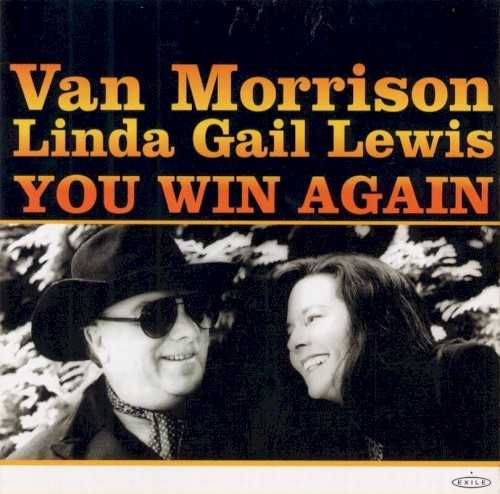 | Album: 30 of 43 Title: You Win Again Released: 2000-09-25 Tracks: 13 Duration: 41:57 Scroll: Up Down Top Bottom 25% 50% 75% Allmusic Wikipedia AlbumCover | 1 Lets Talk About Us (02:52) 2 You Win Again (03:01) 3 Jambalaya (02:56) 4 Crazy Arms (03:37) 5 Old Black Joe (03:20) 6 Think Twice Before You Go (02:38) 7 No Way Pedro (03:43) 8 A Shot of Rhythm and Blues (03:58) 9 Real Gone Lover (03:08) 10 Why Dont You Love Me (02:22) 11 Cadillac (02:32) 12 Baby (Youve Got What It Takes) (03:43) 13 Boogie Chillen (04:00) |
| You Win Again : Allmusic album Review : Van Morrison has always been eccentric, but as he grows older, he seems to get more comfortable with his eccentricities and doesnt strain as hard to be distinctive. Thats why it seems natural to have two albums in one year be as willfully individual as The Skiffle Sessions and You Win Again, a duet album with Linda Gail Lewis. In all honesty, in 2000, nobody but Jerry Lee Lewis fanatics really remembered that his sister Linda Gail is a talent in her own right, but Morrison had a soft spot for her and decided to record a full album with her. Its a modest affair, sporting only one Morrison original ("No Way Pedro") and relying heavily on Jerry Lees catalog, opening with four songs inextricably associated with his Sun recordings. But, if this is a tribute album, its only because this music is in the same spirit as those great recordings. Not everything here is associated with Jerry Lee, but Linda Gails piano is reminiscent of her sibling, and both she and Morrison have the same fearless spirit as the Killer, easily making these songs fit their voices and blur the distinctions between R&B;, blues, country, and rock & roll. Best of all, this is never a conscious decision; theyre just pounding out a bunch of songs they love. You Win Again sounds like it was knocked off in one afternoon by a bar band that knows each other so well, they can anticipate each others next move. It wasnt, of course, but thats the highest compliment it can be paid. No, its not a major work in Vans catalog, but its hard not to smile when listening to it, just like The Skiffle Sessions. Its a roots effort that never sounds studied -- just easy, welcoming, and thoroughly enjoyable. | ||
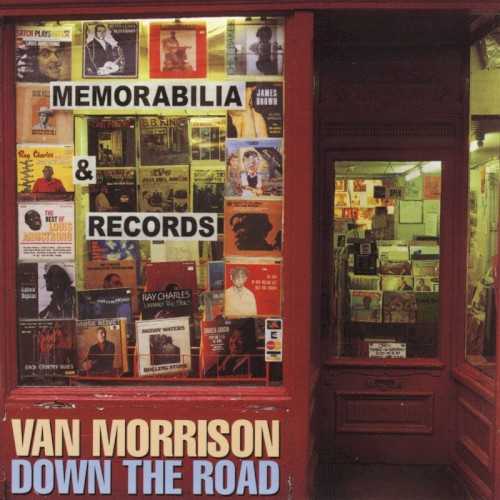 | Album: 31 of 43 Title: Down the Road Released: 2002-05-13 Tracks: 14 Duration: 1:02:05 Scroll: Up Down Top Bottom 25% 50% 75% Spotify Allmusic Wikipedia AlbumCover | 1 Down the Road (04:19) 2 Meet Me in the Indian Summer (03:59) 3 Steal My Heart Away (04:23) 4 Hey Mr. DJ (03:49) 5 Talk Is Cheap (04:23) 6 Choppin’ Wood (03:30) 7 What Makes the Irish Heart Beat (03:49) 8 All Work and No Play (04:55) 9 Whatever Happened to PJ Proby? (03:16) 10 The Beauty of the Days Gone By (05:50) 11 Georgia on My Mind (05:37) 12 Only a Dream (05:01) 13 Evening Shadows (04:04) 14 Fast Train (05:04) |
| Down the Road : Allmusic album Review : After spending much of the 1990s expressing his bitterness with the modern world in albums like Hymns to the Silence and Days Like This, Van Morrison sought to overcome his bile toward the end of the decade, declaring himself Back on Top by 1999. (His fans concurred; the album was his highest-charting effort in more than 20 years and earned a gold record.) He then took an uncharacteristically long three years to make a new original album, though he produced two side projects, the live Skiffle Sessions: Live in Belfast 1998 and You Win Again, a duet record with Linda Gail Lewis, in between. Down the Road is not bitter, but it does look to the past continually and with longing. Musically, it mixes R&B; and jazz with bits of country (especially on "What Makes the Irish Heart Beat") and folk, all conjured from the singers 1950s youth. Lyrically, it deliberately makes use of blues clichés and catch phrases to tell its tales of struggle, recollection, and regret. The album cover depicts the front of a record store, Music and Memorabilia, with a window full of LP covers by blues, R&B;, jazz, and old rock & roll artists, and the music inside corresponds to that picture, in spirit if not always in style. A key song, and a curious one, is "Whatever Happened to PJ Proby?," in which Morrison identifies himself with trendy British pop singers of the early 60s, including Scott Walker and Screaming Lord Sutch. Its hard to imagine that he really thinks he belongs in their company, but he seems both sincere and pained as he concludes, "And whatever happened to me?" If such humility is sincere, it may help explain why Morrison has rejected the trappings of fame all these years, and it makes him all the more endearing. | ||
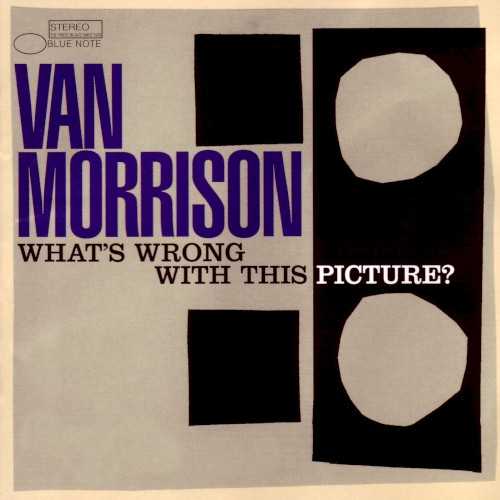 | Album: 32 of 43 Title: Whats Wrong With This Picture? Released: 2003-10-21 Tracks: 13 Duration: 1:03:43 Scroll: Up Down Top Bottom 25% 50% 75% Spotify TrackSamples Allmusic Wikipedia AlbumCover | 1 Whats Wrong With This Picture? (06:00) 2 Whinin Boy Moan (04:17) 3 Evening in June (04:00) 4 Too Many Myths (04:32) 5 Somerset (04:09) 6 Meaning of Loneliness (06:41) 7 Stop Drinking (03:24) 8 Goldfish Bowl (06:01) 9 Once in a Blue Moon (03:30) 10 Saint James Infirmary (05:32) 11 Little Village (04:30) 12 Fame (05:21) 13 Get On With the Show (05:40) |
| What's Wrong With This Picture? : Allmusic album Review : While 2002s Down the Road was the best Van Morrison release in ages -- with its autobiographical allusions, cultural critiques, and new band -- it could not have prepared listeners for the jolt of this, his Blue Note Records debut Whats Wrong With This Picture? While the album is hardly a straight jazz record, it does take the territory he explored on Down the Road another step further into the classic pop music of the 20th century filtered through his own Celtic swing, R&B;, vocal jazz, and blue-eyed soul. The title track that opens the album is as close to an anthem as Morrisons ever written; he states with an easy, swinging, jazzy soul groove that he is not the same person he once was and wonders why that was so difficult for others to accept. There is no bitterness or bite in his assertions. If anything, the question is asked with warm humor and amusement as if it is indeed the listeners hangup if he/she cant accept Morrison "living in the present time." He asks, "Why dont we take it down and forget about it/Cause that aint me at all," as the song whispers to a close. Morrisons employment of a large horn section -- actually a pair of them as the disc was recorded in different sessions -- is full of teeth and big, bad soul. "Whinin Boy Moan" is a direct cue from Mose Allison as read by Big Joe Turner. Hard-swinging R&B; horn lines (including his own alto saxophone) combine with killer solos by tenorman Martin Winning and trumpet boss Matt Holland as Morrison does his most inspired blues shouting since Wavelength. Celtic soul is never far behind, either, as it displays itself on the stunningly beautiful "Evening in June." The way Morrison employs brass, woodwind, and reed textures is unique for him as clarinets, alto and bass, flügelhorns, and loads of saxophones gradually build as the emotion in a tune imparts itself. Acker Bilk makes a return appearance here co-writing and performing on the elegant, bluesy swing of "Somerset." Other than this collaboration and stellar covers of "St James Infirmary" and Lightnin Hopkins "Stop Drinking" -- the most unique and timely interpretation of the nugget since Louis Armstrongs, and it contains the greatest horn solo interplay on any Morrison record ever -- Morrisons songwriting is more expansive, more intricate, and more luxuriant in its use of grooves, vamps, and riffs as they intertwine with beautiful horn charts, sophisticated melodies ,and the always-present blues feel. There are 13 tracks here, and virtually all of them would be standouts on any of his other records. But the aforementioned tracks, along with "Meaning of Loneliness" and "Once in a Blue Moon," are among the finest tunes hes ever written, let alone recorded. This is the sound of an artist who is comfortable making a break with his past because it is not a break; he understands it as the next part of a continuum that goes deeper and wider than anyone else ever expected. This is the sound of self-assurance as it articulates itself with grace and aplomb. | ||
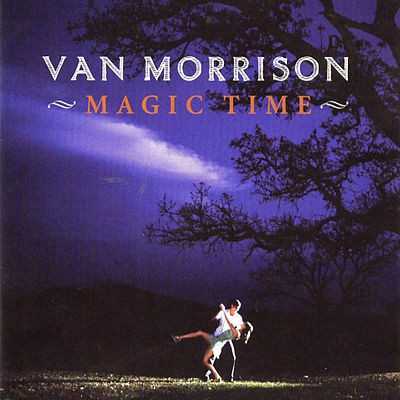 | Album: 33 of 43 Title: Magic Time Released: 2005-05-16 Tracks: 12 Duration: 55:28 Scroll: Up Down Top Bottom 25% 50% 75% Spotify Allmusic AlbumCover | 1 Stranded (05:38) 2 Celtic New Year (06:12) 3 Keep Mediocrity at Bay (03:44) 4 Evening Train (02:51) 5 This Love of Mine (02:44) 6 Im Confessin (04:29) 7 Just Like Greta (06:27) 8 Gypsy in My Soul (04:04) 9 The Lion This Time (04:58) 10 Magic Time (05:08) 11 They Sold Me Out (03:13) 12 Carry On Regardless (05:54) |
| Magic Time : Allmusic album Review : Magic Time is one of those rare, intermittent Van Morrison records that consciously offers a birds eye view of everywhere hes been musically and weaves it all together into a heady brew. The last one was The Healing Game in 1997. Hes made fine records since (Down the Road, Back on Top), but theyve been focused on whatever Muse was pulling his coattails at the time. Magic Time is restless and freewheeling. Lyrically, its alternately bittersweet, celebratory, and ornery. Like all of his records, notions of the past haunt these songs like familiar specters making sure they are not forgotten. Here, Celtic soul, gritty blues, fingerpopping swing, R&B, and classic pop all jockey for dominance over ten originals and three covers. Morrisons sequencing keeps them balanced and the proceedings sharp. "Stranded" has a gorgeous faux doo wop lilt, and an elegant, timeless piano that cascades from the ether as a nocturnal alto saxophone (Morrison) announces a stolid yet world-weary vocal that unhurriedly moves along to a backing chorus. One can hear traces of the Platters "Twilight Time" and the Penguins "Earth Angel" in its grain. "Celtic New Year" is trademark Morrison; the long, loping, repetitive line that is his trademark fuels this one. Its carried by the interplay between Morrisons acoustic and the late Foggy Lyttles electric guitar fills, and aided by Chieftain Paddy Moloneys whistle. A moving yet unobtrusive string arrangement by Fiachra Trench lifts this tale of separation and longing into the large space inhabited by Morrisons voice. Through his lyrical frame, he reaches that place in the heart that whispers of longings so deep they lie beyond the reach of language. The scene changes on track three as the blues make their entrance on "Keep Mediocrity at Bay" (with some fine harp work by Morrison), and the wondrously gritty "Evening Train." On the latter, its Lyttles guitar (the album is dedicated to him) and David Hayes whomping bass that drive the engine, with Morrison and horns punching up into the maelstrom. Lyttles knotty razored fills push Morrisons roaring vocal on to the ledge. The covers all come from the American jazz canon: Fats Wallers "Lonely and Blue," and two tunes associated with Frank Sinatra -- "Im Confessin" and "This Love of Mine" (with lyrics by him!). These tunes are beautifully placed in the albums mix and Morrisons readings are serious, very credible. While "Just Like Greta" is yet another Morrison litany to be left alone, its seductive melody draws the listener deep in with its shimmering organ, pronounced hypnotic line, mournful strings, and a chorus of female voices that add a softer dimension to its edgy intent. "Gypsy in My Soul" is pure, nocturnal velvet funk with great piano work by Brian Connor. The acoustic "The Lion This Time" is one of the finest ballads Morrison has cut in decades. Period. "Carry On Regardless," is a stinging, jagged reggae-touched blues that sends the proceeding out in near riotous joy. Magic Time may look back over decades, but its far from nostalgic. It connects the musical past to Morrisons present and points to a future in the timelessness of great musical tradition. And it displays in spades that its creator never stops looking for new ways to go deeper into the heart of song. | ||
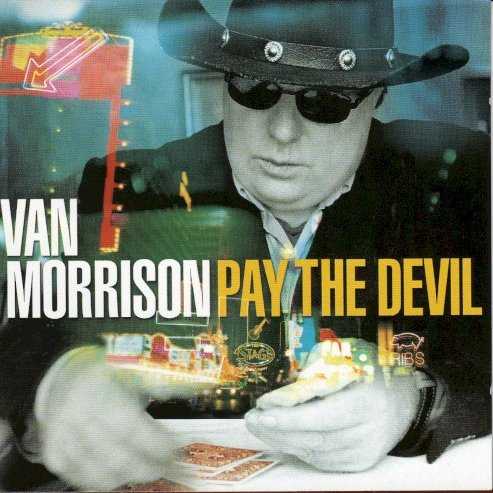 | Album: 34 of 43 Title: Pay the Devil Released: 2006-03-03 Tracks: 14 Duration: 46:17 Scroll: Up Down Top Bottom 25% 50% 75% Spotify Allmusic Wikipedia AlbumCover | 1 There Stands the Glass (02:16) 2 Half as Much (02:35) 3 Things Have Gone to Pieces (03:10) 4 Big Blue Diamonds (02:56) 5 Playhouse (04:13) 6 Your Cheatin’ Heart (02:32) 7 My Bucket’s Got a Hole in It (02:22) 8 Back Street Affair (02:48) 9 Pay the Devil (03:02) 10 What Am I Living For? (03:56) 11 This Has Got to Stop (04:43) 12 Once a Day (02:51) 13 More and More (02:46) 14 Till I Gain Control Again (05:59) |
| Pay the Devil : Allmusic album Review : Pay the Devil, an album-long foray into country music, shouldnt come as a surprise to Van Morrison fans. Its a logical extension of his love affair with American music. Certainly blues, R&B;, soul, and jazz have been at the forefront, but one can go all the way back to the Bang years and find "Joe Harper Saturday Morning," or songs on Tupelo Honey that touch country. More recently, You Win Again, with Linda Gail Lewis, offered two Hank Williams tunes and "Crazy Arms." The Skiffle Sessions with Lonnie Donegan offered traditional Southern tunes including Jimmie Rodgers "Mule Skinner Blues." Morrisons lyrics have also referenced country music blatantly. Pay the Devil comes from direct sources of inspiration: his fathers skiffle band and Ray Charles historic forays into country on the two volumes of Modern Sounds in Country and Western Music in 1962. The evidence lies in three cuts on this disc, all of which Charles recorded: Curley Williams "Half as Much," Art Harris and Fred Jays "What Am I Livin For," and Hank Williams "Your Cheatin Heart." Morrisons a cagey one: his own mercurial versions of these nuggets are more traditional than those of Charles, yet are steeped in similar production styles that offer a clear nod to the late artist. While there are no horns on Pay the Devil, the layers of strings on top of "fiddles" and honky tonk pianos -- as well as earlier pedal steel styles -- are giveaways. And then there is the voice. Like Charles, Morrison is a soul singer no matter what he sings and he digs into these tomes with fire and the uncommon sweetness of tone and limited timbre that Charles did. But Morrison re-creates these tunes in his own image too. Recorded in Belfast with his own band, Pay the Devil flows seamlessly from start to finish over 15 cuts. It opens with a killer read of "There Stands the Glass," which is brave considering its synonymous with Webb Pierce (one of two here -- the other is "More and More"). Its drenched in pedal steel, electric guitar, and a pair of basses. The fiddle floats just above the upright piano and a swell of strings in the bridge. It drips with a swaggering loneliness and gets the full weepy treatment with Geraint Watkins piano solo. "Things Have Gone to Pieces," written by Leon Payne, is full of wasted self-pity and honky tonk desolation. Once more its a daring move given how closely associated the song is with George Jones. In the grain of his lionhearted voice, Morrison tears it back to its essence as a country-blues song. Morrison outdoes himself on Clarence Williams "My Buckets Got a Hole in It," turning it into a rockabilly shuffle. Billy Wallaces "Back Street Affair" is full of barroom soul. Bill Andersons "Once a Day" is given the full 60s countrypolitain treatment here, with strings and a full backing chorus that could almost be the Anita Kerr Singers. "What Am I Living For" is a tune closely associated with Conway Twitty in his prime. Morrisons version touches on the original but brings it home to Belfast. In addition to the classics, there are three originals here as well. Theres the rollicking hillbilly blues of "Playhouse" that growl like the young Conway Twitty and Johnny Horton did. Then comes the misleading title track. Unable to let his discontent stay out of his records, Morrison once again assails those who would pigeonhole his music, to the tune of a laid-back, shuffling country stroll. "This Has Got to Stop" is the finest of the three. Its proof that Morrison can write a solid, traditional honky tonk song worthy of a Jones, or a Don Gibson. His vocal digs into the lyrics and sets it in the blanket of the deceptively loose barroom-styled accompaniment. The set closes with a deeply emotional read of Rodney Crowells "Till I Gain Control Again." Paul Goddens lonesome dobro is the engine that guides it emotionally. Bob Lovedays violins add painterly touches to the Watkins piano in the foreground and the guitars fill the rest. Goddens pedal steel pleads the country tradition, but Morrisons singing is so full of sadness, ache, and regret that it actually closes the gap between it and soul music as the record whispers to a shimmering, whispering close. Pay the Devil is at the crossroads of country, blues, and soul. In his voice is the authority to bring them together. No matter how restless and inconsistent he can be because of his obsession with perfection, Morrison is capable of being inspired enough to let his muse guide him toward something approaching greatness. Pay the Devil is proof . | ||
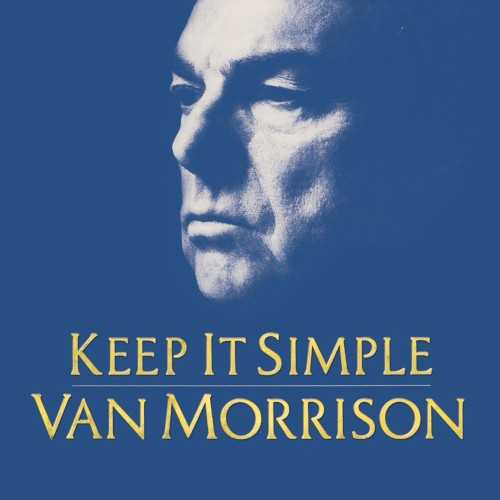 | Album: 35 of 43 Title: Keep It Simple Released: 2008-03-14 Tracks: 11 Duration: 49:54 Scroll: Up Down Top Bottom 25% 50% 75% Spotify Wikipedia Allmusic AlbumCover | 1 How Can a Poor Boy? (05:43) 2 School of Hard Knocks (03:44) 3 That’s Entrainment (04:31) 4 Don’t Go to Nightclubs Anymore (04:30) 5 Lover Come Back (05:15) 6 Keep It Simple (03:33) 7 End of the Land (03:16) 8 Song of Home (04:12) 9 No Thing (04:31) 10 Soul (03:36) 11 Behind the Ritual (06:58) |
| Keep It Simple : Allmusic album Review : Keep It Simple is a mantra for Van Morrison, as he stripped his music down to the bare basics years ago and then comfortably rode that groove, comprised in equal parts of blues, soul, jazz, and country. Van has been riding this groove so long that its hard to pinpoint exactly when he settled into it, but looking back, things started to shift in the mid-90s, as understated R&B rhythms took precedence and he started to punctuate them with country songs (or in the case of Pay the Devil, an entire LP of country tunes). Despite his new label Lost Highways insistence that the fact this is his first album of all-original material since 1999s Back on Top, Keep It Simple doesnt feel all that different than the records since 1999, either in its feel or in structure, nor does it help that Vans songs play with older tunes, both in their lyrics and their very titles ("Thats Entrainment," of course, but "Dont Go to Nightclubs" is a winning spin on "Dont Get Around Much Anymore"). Familiarity can breed contempt -- and theres no denying that there is no figure as stubborn in popular music than Van Morrison, so itd be easy for the cynical to assume that his refusal to change is a mere spiteful act, just as it would be easy for some listeners to think all his albums sound the same, because they kind of do -- but familiarity can also deepen the music, which is the case with Morrison. This is lived-in, soulful music, the kind that can only be made after years of playing the classics, and if that doesnt quite make for a compelling album, it does make for a comforting one. Its as easy to slip into this album as it is a warm bath, as Vans cantankerous rumblings only surface (quite slyly) on the closing "Behind the Ritual," where he scats "blah blah blah" on the corner, suggesting that whatever hes singing doesnt really matter -- and, in a way, he may be right, as the lyrics, the songs even, dont matter as much as the overall sound on Keep It Simple, which is as pure a groove album as hes ever made. There are no surprises, but when you do something this well, there doesnt need to be. | ||
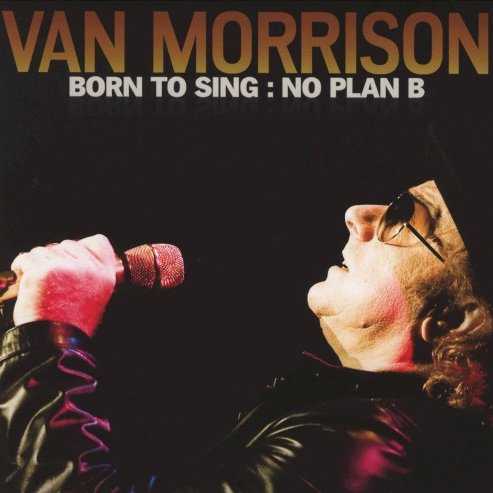 | Album: 36 of 43 Title: Born to Sing: No Plan B Released: 2012-09-29 Tracks: 10 Duration: 59:51 Scroll: Up Down Top Bottom 25% 50% 75% Spotify Allmusic AlbumCover | 1 Open the Door (To Your Heart) (05:19) 2 Goin Down to Monte Carlo (08:12) 3 Born to Sing (04:39) 4 End of the Rainbow (04:35) 5 Close Enough for Jazz (03:45) 6 Mystic of the East (04:56) 7 Retreat and View (06:50) 8 If in Money We Trust (08:02) 9 Pagan Heart (07:52) 10 Educating Archie (05:41) |
| Born to Sing: No Plan B : Allmusic album Review : Born to Sing: No Plan B is Van Morrisons first studio offering in four years and his second for Blue Note. It is the longest span of studio silence in his career. Uncharacteristically, he recorded the set in his hometown of Belfast with a crack sextet that includes a three-piece horn section with an alto saxophone. Trombonist Alistair White also features prominently; his warm timbres, muted colors, and delightful solos are centerpieces in many songs. Born to Sing: No Plan B is more jazz-centric, but not at the expense of his trademark Celtic swing, blues, and soul. Morrisons singing is unfettered, relaxed, and unguarded. His charts are simultaneously more sophisticated and organic. "Open the Door (To Your Heart)" opens with a souled-out guitar atop a laid-back B-3 and Memphis-styled bassline. The horns groove underneath Morrisons vocal, which is underscored by piano vamps. Lyrically, he states one of the albums primary themes: the real cost of materialism and greed. The soul-drenched "End of the Rainbow" and the old-school R&B; set closer, "Educating Archie," also address the theme directly and tastefully. But its "If in Money We Trust" -- the sets finest moment -- where he gets down inside it and lays out his truth with some of the finest low-end singing of his career in a brooding jazz-blues with meaty piano, canny interwoven dialogue between the horns, and taut bass and hand percussion that bubble in the pocket. That theme aside, this isnt a political record; its not preachy, angry, or even disillusioned. Its Morrison merely laying down his own analytic reportage from the headlines. The title cut is a strolling R&B; arrangement that certainly evokes those he heard from bar bands as a kid in Belfast. In it one can hear everyone from Fats Domino to Belfasts Bluebeats Show Band in the arrangement -- check the muted trombone break answered by clarinet. The breezy, ironic "Goin Down to Monte Carlo" bemusedly contains John Paul Sartres infamous "Hell is other people." The tune suggests that the most vapid place on earth is perhaps the best place to "get some peace." It contains an upright bass solo, a gorgeous muted trumpet break, and fine, laid-back scat singing from Morrison. Likewise, "Close Enough for Jazz" (an older instrumental with lyrics) is a perfect meld of swinging R&B; and post-swing jazz. "Mystic from the East" and "Retreat and View" are spiritual in nature; they connect directly to a constant theme in Morrisons oeuvre. The darker side of spirituality is evoked in "Pagan Heart," with Morrison paying tribute to John Lee Hooker via snarling electric guitar playing, as well as Robert Johnson in the lyric. Morrison sounds fully engaged, revitalized, even ambitious. On Born to Sing: No Plan B hes compiled the various elements of his musical oeuvre and assembled them into a seamless, glorious whole. | ||
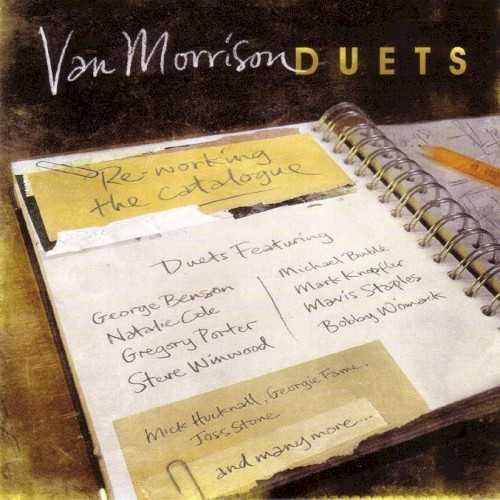 | Album: 37 of 43 Title: Duets: Re‐Working the Catalogue Released: 2015-03-16 Tracks: 16 Duration: 1:16:39 Scroll: Up Down Top Bottom 25% 50% 75% Spotify Allmusic AlbumCover | 1 Some Peace of Mind (05:16) 2 If I Ever Needed Someone (03:50) 3 Higher Than the World (03:49) 4 Wild Honey (06:23) 5 Whatever Happened to P.J. Proby (03:43) 6 Carrying a Torch (04:53) 7 The Eternal Kansas City (04:11) 8 Streets of Arklow (04:58) 9 These Are the Days (03:52) 10 Get On With the Show (04:42) 11 Rough God Goes Riding (04:24) 12 Fire in the Belly (06:41) 13 Born to Sing (04:00) 14 Irish Heartbeat (05:15) 15 Real Real Gone (04:00) 16 How Can a Poor Boy? (06:35) |
| Duets: Re‐Working the Catalogue : Allmusic album Review : Its not hard to wonder if Van Morrison was trying to drive away listeners by titling this album Duets: Re-Working the Catalogue, a name that practically howls this is a work defined by a lack of ambition and a desire to rest on his laurels. The clumsy title is especially strange because this an honestly good album that doesnt fit those negative expectations. Even though Re-Working the Catalogue finds Morrison reviving songs from his extensive repertoire, he wisely focuses on lesser-known tunes rather than compete with his best-known work, and Morrison is able to generate a genuine enthusiasm for this music, which might not be the case if he tried to record "Moondance" or "Brown Eyed Girl" one more time. And the Belfast Soul Man for the most part has chosen duet partners with intelligence; rather than load up this set with current chart-toppers who have little knowledge of Morrisons legacy, most of the singers working with Morrison are cut from similar cloth, such as Steve Winwood, Chris Farlowe, Georgie Fame, and Bobby Womack (in what proved to be one of the latters final recordings). If Joss Stone is considerably younger and more melismatic than Vans other partners, she understands what "Wild Honey" needs, and Michael Bublé delivers an admirably lively performance on "Real Real Gone." There are almost certainly other singers who would have sounded better on "Whatever Happened to P.J. Proby?," but Mr. Proby himself seems to be in on the joke with his delivery, and Van honestly sounds like hes having a lot of fun (not a common occurrence) with Taj Mahal on "How Can a Poor Boy?" And if Mavis Staples voice is a bit rough on "If I Ever Needed Someone," she delivers the song with a churchy authority that Morrison clearly respects. As for Van himself, at the age of 69 his vocals lack the power and emotional force he so easily conjured in the 70s, but his sense of phrasing is as soulful and idiosyncratic as it has ever been, and he seems determined to find something in these songs that he missed the first time. This could easily have been a very lazy album, but Morrison gives this material an honest and thoughtful effort. (His grainy but potent sax work is a lot of fun, too.) And the production (by Don Was) and mix (by Bob Rock) is smooth without polishing out the personality of Morrison and his guests. Recutting a batch of your old songs is usually a sign youve run out of ideas, as is recording a full album of duets; while its hard to know what Morrisons motivations were for making Duets: Re-Working the Catalogue, the pleasant surprise is that Morrison has managed to dodge both those bullets, and if its a long way from a triumph, its a solid, heartfelt work from a veteran artist who isnt about to give up the ghost. | ||
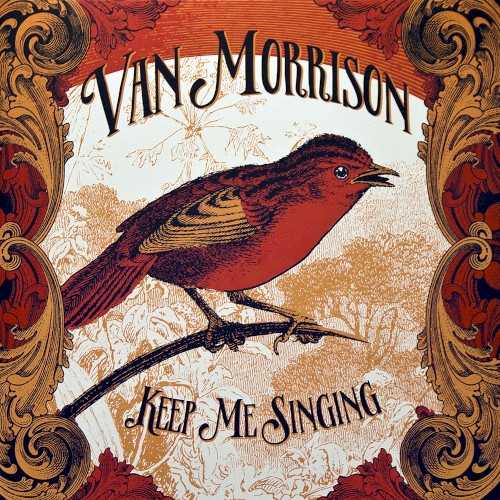 | Album: 38 of 43 Title: Keep Me Singing Released: 2016-09-30 Tracks: 13 Duration: 56:39 Scroll: Up Down Top Bottom 25% 50% 75% Spotify Wikipedia Allmusic AlbumCover | 1 Let It Rhyme (03:54) 2 Every Time I See a River (04:43) 3 Keep Me Singing (03:40) 4 Out in the Cold Again (07:07) 5 Memory Lane (04:09) 6 The Pen Is Mightier Than the Sword (03:51) 7 Holy Guardian Angel (06:19) 8 Share Your Love With Me (04:11) 9 In Tiburon (05:18) 10 Look Behind the Hill (02:28) 11 Going Down to Bangor (05:18) 12 Too Late (02:49) 13 Caledonia Swing (02:52) |
| Keep Me Singing : Allmusic album Review : Van Morrison does exactly what he wants, when he wants, and continually mines the past no matter the cost. Its been four years since the Celtic soulman issued a collection of original studio material (Born to Sing: No Plan B), but given the music, it could have been yesterday. Morrison has no interest in innovation, hes already done that. The pace here is (mostly) laid-back, the music drenched in jazz, R&B, blues, and classy pop. He revels throughout in an elegant slow burn; his lyric themes are bittersweet, melancholic, filled with emotional and symbolic memory; his longing for the previous prevalent. The first line on album-opener "Let It Rhyme" is: "Throw another coin in the wishing well/Tell everybody to go to hell…" atop skeins of country and R&B as he reveals his recalcitrance. Celtic folk burrows underneath soul in the title track, as a trio of female backing singers, swelling B-3, and a snare undulate beneath his lyrics: "Keep me singing, a new beginning/waiting for my change to come...." A breezy harmonica solo adds a twist, but this tune reflects (musically as well as poetically) the protagonist in "Tore Down à la Rimbaud" from 1985s A Sense of Wonder, who is far down the road, holding stubbornly to a hope he knows (like his countryman Samuel Beckett) will elude him. "Out in the Cold Again" is one of Morrisons finest torch songs in a decade. His delivery hovers just above a small string section and Fiachra Trenchs Errol Garner-esque piano. "The Pen Is Mightier Than the Sword" weaves blues-drenched electric guitar and organ exchanges in a midtempo steamy groove appended to excellent backing vocals from Dana Masters and Lance Ellington. The lone cover is a gospelized-blues version of Don Robeys and Alfred Braggs ballad "Share Your Love with Me." (It was originally recorded by Bobby "Blue" Bland in 1963, and made immortal by Aretha Franklin in 1970. Morrisons version lies closer to the original in spirit.) The singer revisits his time in the San Francisco Bay area for "In Tiburon," where a circular Celtic jazz melody flows under his poetic lines as they name check various signposts in memory, invoking Beat poets, musicians, and locales offeringa tale of a woman gazing out a window listening to music. He invokes this mysterious person over and again with the lines "Now we need each other to lean on…." A muted trumpet solo is misty, bittersweet, and tender. "Look Beyond the Hill" is a fingerpopping jazz tune with ghost traces of a "Moondance" musical feel, but without the magic hook. The outlier is "Going Down to Bangor," a raw blues, that directly references the early Chicago sound. Morrison offers his best blues shout and wails on harmonica. Keep Me Singing closes with "Caledonia Swing," an instrumental where skiffle, punchy R&B, and bluebeat ska rhythm (yes, really) come together in trademark style. Morrison delivers each of these songs with attentiveness; the material is consistently presented with finesse. Nothing further is required. | ||
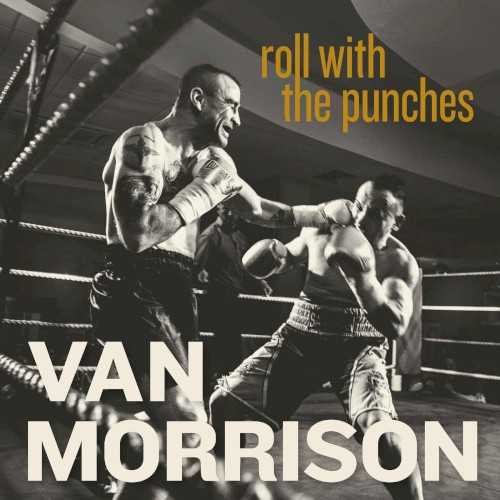 | Album: 39 of 43 Title: Roll With the Punches Released: 2017-09-22 Tracks: 15 Duration: 1:03:23 Scroll: Up Down Top Bottom 25% 50% 75% Spotify Allmusic AlbumCover | 1 Roll With the Punches (03:58) 2 Transformation (03:31) 3 I Can Tell (03:51) 4 Stormy Monday / Lonely Avenue (05:30) 5 Goin’ to Chicago (05:22) 6 Fame (05:06) 7 Too Much Trouble (03:04) 8 Bring It On Home to Me (05:39) 9 Ordinary People (04:41) 10 How Far From God (03:47) 11 Teardrops From My Eyes (03:53) 12 Automobile Blues (03:39) 13 Benediction (03:12) 14 Mean Old World (04:59) 15 Ride On Josephine (03:03) |
| Roll With the Punches : Allmusic album Review : Van Morrisons 2016 album Keep Me Singing included the hard blues track "Goin Down to Bangor," a tune that directly foreshadowed Roll with the Punches, a set of five originals and ten covers drenched in Chicago-style blues. He also heavily engages in collaboration here with appearances by Jeff Beck, Chris Farlowe, Jason Rebello, Paul Jones, and Georgie Fame. At 72, Morrison can still belt the blues with passion and swagger. The opening title track is an original that pays homage to Willie Dixons "Hoochie Coochie Man" riff. He elaborates on the wrongs in life and love, but exhorts listeners to get up and move on without self-pity. He follows with the single "Transformation," a trademark Celtic R&B; tune and the sets outlier; his vocal interaction with Becks tasty slide guitar is irresistible. "I Can Tell," with Beck and Farlowe, is the first of two Bo Diddley tunes, and offers a fantastic lead-in to the medley of T-Bone Walkers "Stormy Monday" and Doc Pomus "Lonely Avenue." Morrison has cut the former several times dating back to Them, while a version of the latter appeared on 1993s Too Long in Exile. Beck shines, unfurling his guitar wrangling with fire as Farlowe (who had a hit with "Stormy Monday in the early 60s) and Morrison exchange verses effortlessly, making these the singers definitive versions. Fame vocally opens the original "Goin to Chicago" with a jazzmans swing, accompanied only by double bass. Harmonica, electric guitar, and drums follow his organ on the second verse and Morrison enters on the third in a fingerpopping slow burn. Morrison first recorded "Bring It on Home to Me," for the live Its Too Late to Stop Now.... While that version was far more animated, this one offers the soulmans nuanced best as a vocal stylist and he sings the hell out of it. Becks solo on the tune is his own watermark on the set. Morrisons "Ordinary People" is a stomping, textbook case in how to write classic-style blues in the 21st century. A stride piano is the engine for the growling read of Sister Rosetta Tharpes gospel blues "How Far from God," and Morrisons passionate delivery makes every word believable. "Teardrops from My Eyes" was Ruth Browns first number one hit; led by Fame, the band lays down swinging R&B;, creating a solid backdrop for Morrison to wail. Little Walters "Mean Old World" was once an oft-covered standard, and Morrison reminds us why by reviving its fiery spirit. A rowdy, raucous take on Bo Diddleys "Ride on Josephine" closes out this party on a proper note, with Morrison letting the backing chorus and the tunes trademark boogie riff guide him. On Roll with the Punches, Morrison revisits his roots without nostalgia or overt reverence. For him, these songs are as vital and important to him as his own songs. The spontaneity on this set is more akin to a live record than a studio effort, making it a most welcome entry in his catalog. | ||
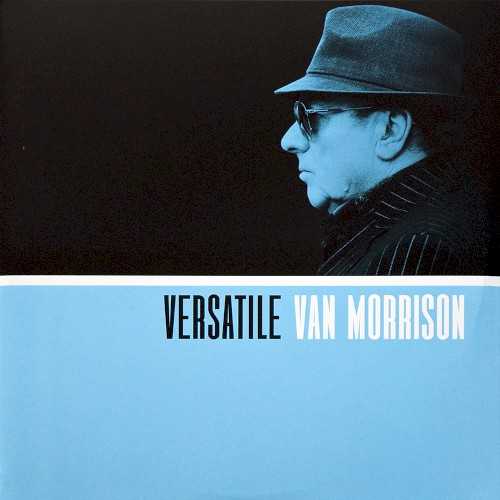 | Album: 40 of 43 Title: Versatile Released: 2017-12-01 Tracks: 16 Duration: 1:08:28 Scroll: Up Down Top Bottom 25% 50% 75% Spotify Allmusic AlbumCover | 1 Broken Record (03:15) 2 A Foggy Day (03:33) 3 Let’s Get Lost (03:37) 4 Bye Bye Blackbird (03:45) 5 Skye Boat Song (04:01) 6 Take It Easy Baby (04:07) 7 Makin’ Whoopee (04:51) 8 I Get a Kick Out of You (04:09) 9 I Forgot That Love Existed (03:37) 10 Unchained Melody (04:32) 11 Start All Over Again (04:40) 12 Only a Dream (05:29) 13 Affirmation (06:03) 14 The Party’s Over (03:09) 15 I Left My Heart in San Francisco (06:01) 16 They Can’t Take That Away From Me (03:33) |
| Versatile : Allmusic album Review : Versatile is Van Morrisons 38th album, and follows the release of the excellent R&B; and blues covers collection Roll with the Punches by less than three months. Like its predecessor, its primarily a covers set, but its focus is on jazz and pop standards from the Great American Songbook with six originals added for good measure. Historically, these experiments havent worked for rock artists: Rod Stewart delivered five overblown, badly sung collections from the canon, and Bob Dylan delivered five discs of highly idiosyncratic interpretations of the stuff. Even Boz Scaggs tried them with very mixed results. Morrison fares better than his peers due to experience -- standards have peppered his set lists for decades. Versatile is not a pillar in his catalog, but its not a cynical cash-in, either. Morrison surrounds himself with a septet that includes saxophones, trombone, keys, guitar, bass, and drums. Most of these tracks were recorded in hotel lounges in Irelands County Down, adding to the slippery jazz feel. The canonical material proves a real interpretive challenge. Curiously, he opens the record with a throwaway new original entitled "Broken Record," that shows off his bands fingerpopping swing quotient but little else. He quickly recovers with a fine reading of the Gershwins "A Foggy Day," showcasing his fluid phrasing and empathic lyric interpretation. His Chet Baker worship is well known, so it shouldnt come as a surprise that he takes on "Lets Get Lost." His take is jaunty, offering tinges of Jimmy Rushing-inspired R&B; while retaining its identity as a jazz tune. While his muted scat groove on Cole Porters "Bye Bye Blackbird" is overly strident, he gives a polished, nuanced performance to the composers "I Get a Kick Out of You." "Makin Whoopee" contains a nice bluesy chart (Dave Kearys electric guitar playing recalls Grant Greens), but Morrisons vocal is uncomfortably stilted. Among his own tunes are two new ones -- the punchy, Jimmy Witherspoon-esque "Take It Easy Baby" and the contemplative, nearly spiritual, modal, instrumental "Affirmation" with Sir James Galway guesting on flute -- as well as beautifully rendered rearrangements of catalog material -- "I Forgot That Love Existed," "Start All Over Again," and "Only a Dream." There is also a deeply satisfying arrangement of the traditional "Skye Boat Song" that melds Celtic soul with Celtic swing as Morrisons smoky alto sax leads the rest of the horn sections lithe groove. While he could have left off "I Left My Heart in San Francisco" as it adds nothing to the the canonical versions by Tony Bennett and Frank Sinatra, readings of "The Partys Over" "Unchained Melody" and the Gershwin closer "They Cant Take That Away from Me" are impeccable examples of Morrisons mercurial phrasing and limpid modern arrangements that make swing their top priority. Versatile has its flaws and will likely appeal most to longtime fans, but Morrison fully invests himself in each tune, singing them as if he wrote them. This is head and shoulders above similar efforts by his peers and a solid addition to his shelf. | ||
 | Album: 41 of 43 Title: The Alternative Moondance Released: 2018-04-21 Tracks: 10 Duration: 43:01 Scroll: Up Down Top Bottom 25% 50% 75% AlbumCover | 1 And It Stoned Me (alternate mix) (04:37) 2 Moondance (take 22) (04:50) 3 Crazy Love (alternate mix) (02:37) 4 Caravan (take 4) (05:52) 5 Into the Mystic (take 14) (03:22) 6 Come Running (take 2) (04:38) 7 These Dreams of You (alternative version) (04:02) 8 Brand New Day (take 3) (05:24) 9 I Shall Sing (take 7) (03:58) 10 Glad Tidings (alt. version) (03:41) |
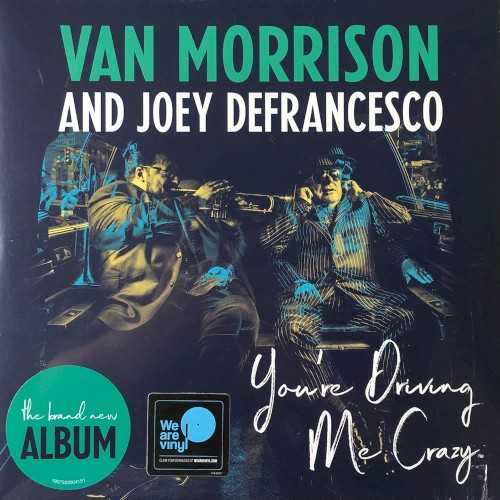 | Album: 42 of 43 Title: You’re Driving Me Crazy Released: 2018-04-27 Tracks: 15 Duration: 1:10:44 Scroll: Up Down Top Bottom 25% 50% 75% Spotify Allmusic AlbumCover | 1 Miss Otis Regrets (05:15) 2 Hold It Right There (04:08) 3 All Saints Day (03:05) 4 The Way Young Lovers Do (04:13) 5 The Things I Used to Do (05:55) 6 Travellin’ Light (04:18) 7 Close Enough for Jazz (04:45) 8 Goldfish Bowl (07:05) 9 Evening Shadows (03:21) 10 Magic Time (05:13) 11 You’re Driving Me Crazy (04:46) 12 Everyday I Have the Blues (05:38) 13 Have I Told You Lately (04:52) 14 Sticks and Stones (02:46) 15 Celtic Swing (05:15) |
| You’re Driving Me Crazy : Allmusic album Review : Van Morrisons late career tear continues with Youre Driving Me Crazy, his third album in seven months. Following the formula of 2017s Roll with the Punches and Versatile -- each offered jazz, blues and R&B; standards and redone originals -- this set offers eight tracks from Morrisons catalog and seven standards. it stands on its own, however, as a collaborative encounter with jazz organist and trumpeter Joey DeFrancescos hip quartet. They all holed up in a Sausalito studio and completed the recording in only two days, capturing everything in a take or two. The loose feel is deceptive as the playing is anchored deep in the pocket; it crackles with live-wire intensity. Cole Porters "Miss Otis Regrets" is framed by a gentle swing, with DeFrancescos organ and Troy Roberts smoky tenor saxophone introducing Morrison. Though he sings in a lower register now, his voice has lost none of its suppleness. He hovers, glides, and swoops through the lyrics; his vocal is akin to another horn, thus making DeFrancescos trumpet solo a virtual duet. The jump swing of "All Saints Day" sounds like Jimmy McGriff jamming with Louis Jordan and James Moody. The new version of "The Way Young Lovers Do," from Astral Weeks, offers a lilting, Coltrane-esque soprano saxophone, modal changes, souled-out scatting, and minor swing, revealing just how prescient and timeless the song remains. Johnny Mercers "Travelin Light" is a sweet, sultry blues with muted trumpet, shimmering chords, and Morrisons improvisations on the changes. The band stretches out on "Goldfish Bowl." Morrisons fingerpopping delivery touches on everyone from Ray Charles to Jimmy Witherspoon; whats more, he adds his alto horn for a twin saxophone attack as DeFrancescos tight B-3 solo is appended by guitarist Dan Wilsons stinging, fleet-fingered break. No tune here signifies the collective musical mind meld like the title track by Walter Donaldson. It finds Morrison laughing with delight during the instrumental breaks and outro as the band swings and struts. "Everyday I Have the Blues," with twinned saxes, bassline-heavy B-3, and popping snares becomes the perfect jump jam. The uptempo read of "Have I Told You Lately That I Love You" marks the latter (and best) of two duets between Morrison and daughter Shana (the other is Eddie "Cleanhead" Vinsons hard bopping "Hold It Right There"). Its three-saxophone head and sumptuous, soul-drenched organ fills surround the pairs empathic singing. The funky Titus Turner-penned "Sticks and Stones" offers dazzling electric piano pumping from DeFrancesco, bell-like cymbals from Wilson, and Morrison straddling of the worlds of R&B;, jazz, and blues. Closer "Celtic Swing" is the lone instrumental, a stellar showcase for Morrisons own alto playing and Wilsons arpeggio-rich soloing with DeFrancesco keeping the breezy groove even when he embellishes it during his solo. Youre Driving Me Crazy is as energetic as any live show. Of the three successive recordings done in this way, this one stands head and shoulders above for its inspired performances and choices of material. | ||
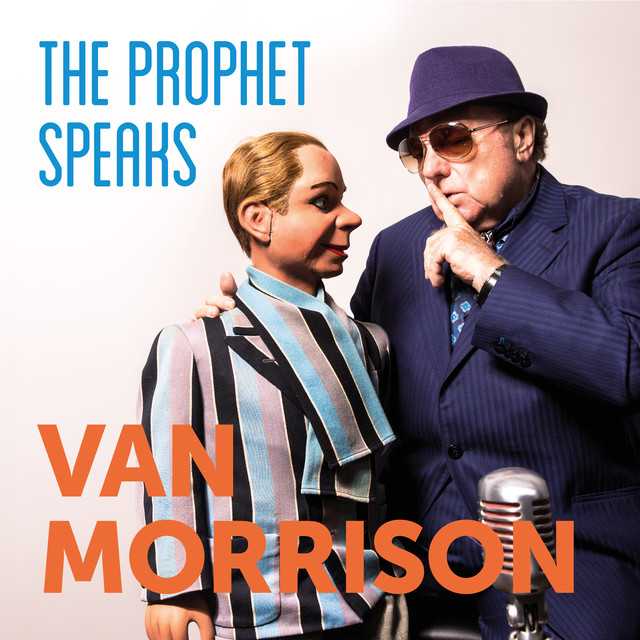 | Album: 43 of 43 Title: The Prophet Speaks Released: 2018-12-07 Tracks: 14 Duration: 1:08:58 Scroll: Up Down Top Bottom 25% 50% 75% Spotify Allmusic AlbumCover | 1 Gonna Send You Back to Where I Got You From (04:41) 2 Dimples (05:33) 3 Got to Go Where the Love Is (04:23) 4 Laughin and Clownin (05:31) 5 5AM Greenwich Mean Time (05:37) 6 Gotta Get You Off My Mind (03:44) 7 Teardrops (06:00) 8 I Love the Life I Live (03:35) 9 Worried Blues / Rollin and Tumblin (06:22) 10 Ain’t Gonna Moan No More (06:16) 11 Love Is a Five Letter Word (03:46) 12 Love Is Hard Work (04:28) 13 Spirit Will Provide (04:03) 14 The Prophet Speaks (04:55) |